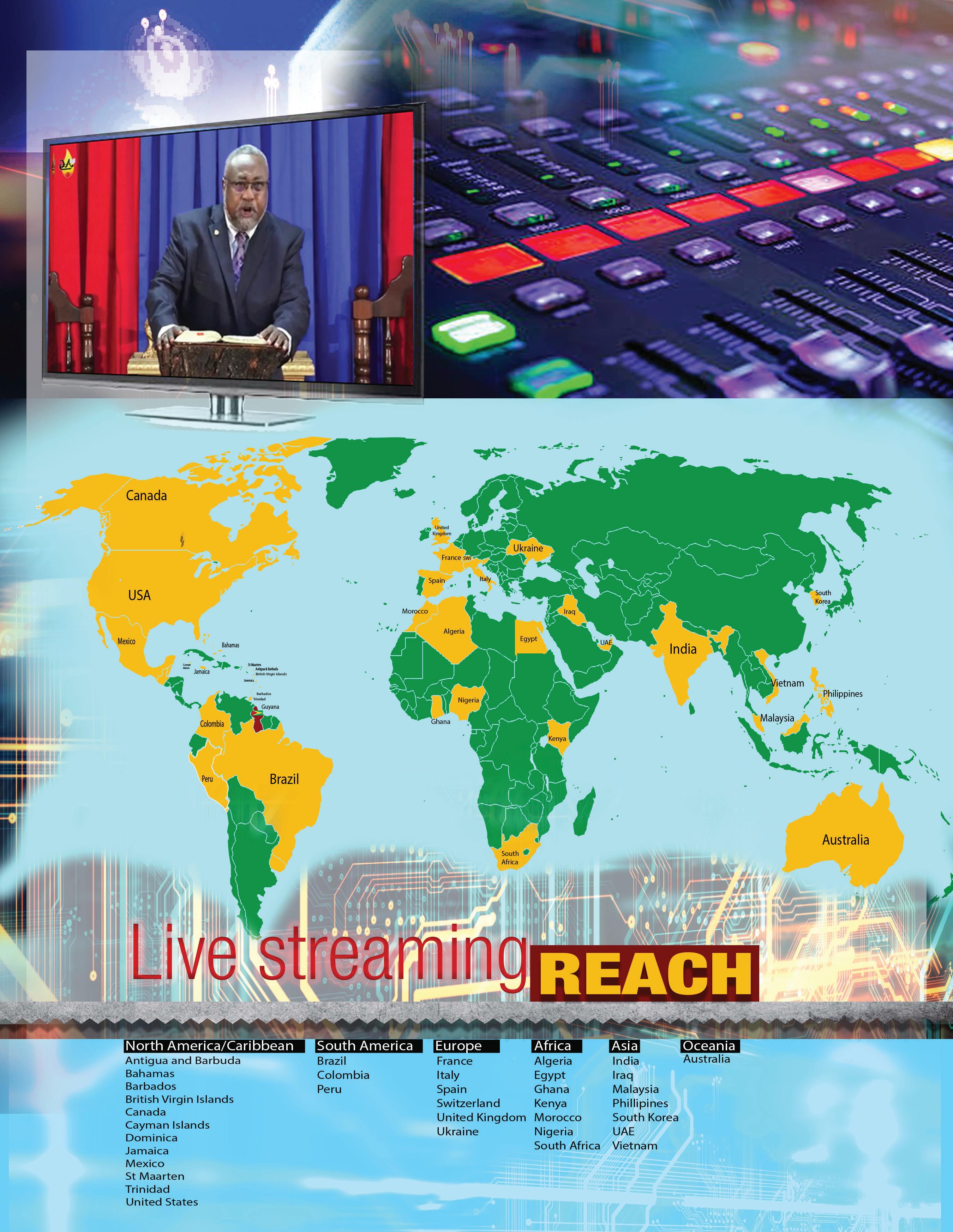




The last two years were some of the toughest years of our lifetime, but in addition to the countless challenges we encountered, there were opportunities. Recognising and seizing those opportunities required preparation and diligence. As Guyanese and citizens of the kingdom of God, we are uniquely poised to seize the day.

Jesus, in the book of Luke, presented a classic lesson on pursuing opportunities. He tells a parable of a nobleman who travelled afar to seek a kingdom. Prior to his departure, he entrusted ten of his servants a certain amount of resources and instructed them to occupy until he returned. The account tells of their various actions and business ventures, including investments (Luke 19:13). We are likewise commissioned by Jesus to meaningfully occupy until he returns.
Opportunities present themselves at every juncture of our lives, and in various forms, both common and rare. As children of God, we are called to be discerning of the opportunities that align with His Word and purpose for our lives.
Retired Coca-Cola CEO, Brian Dyson once said that life is filled with five important principles: Work, Health, Family, Friends, and Spirit. He pointed to the fact that while work is vital, if it is dropped, like a rubber ball, it can and will bounce back. On the other hand, health, family, friends, and spirit, if dropped, like glass, can and will be shattered. For this reason, opportunities that may appear common, should not be underestimated. Great opportunities are often hidden in our everyday interactions, like our role in the family. Impacting the most important unit in society presents an incredible opportunity to impact the community and the nation.
Seizing opportunities requires an understanding of what is happening around us locally and further afield. We must be ever cognisant of the prospects, but more than that, we must be ever confident that as children of God, and by design, we can thrive in any environment. Renowned author, Dr Myles Munroe in his book, Overcoming Crisis, said solutions must be initiated and not waited upon. He proposes this proactive approach to life as a recipe for positive, forward growth.
byWe are individual reservoirs of giftings and talents, predetermined by our Father for our walk here on earth - to live successfully and to fulfil His purpose. It is easy to be distracted these days by the plethora of motivational noise; some say unleash your potential, while others teach you how to harness your potential. So, which is it? Be resolute in your practice of carpe diem. Be intentional about stirring up your giftings and serving them well. The question, ‘what was I put here to do’ should be ever close to our hearts. Be faithful in the things over which you are entrusted stewardship, and whatsoever your hands find to do, do it well. In other words, harnessing your talent can lead to unleashed potential.


As our country approaches a period of rapid growth and change, we must all seek to become participants in the process. The volume of progress that we experience as a society, depends largely on the deliberate choices we make on a personal level. Jeremiah 29:5 encourages us to seize the opportunity to occupy, do business, build houses and live in them, plant gardens and eat their produce, and grow more food. Possessing land is an indisputable way to break the cycle of poverty.
We have a duty to ourselves, and to Jehovah God, to apply these principles and values to our lives. God’s plans are different from our plans and His plan is that we should prosper and be in good health. We must therefore be prepared and positioned to engage opportunities.

Many woeful tales are told of people who lose their lands...
God is a God of order, period. One should never take for granted the words of the servants of God...
Edward Jenner made history in 1796 as the founder of vaccinology...
Many educational programmes culminate in a graduation ceremony...

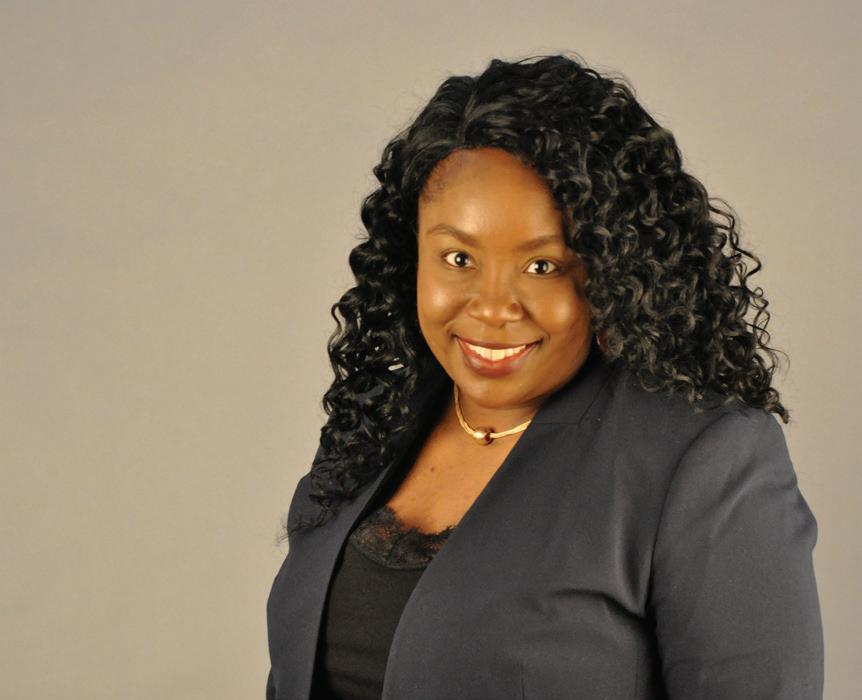
Iam one with the land and the land is one with me am one with the land and the land is one with me..,

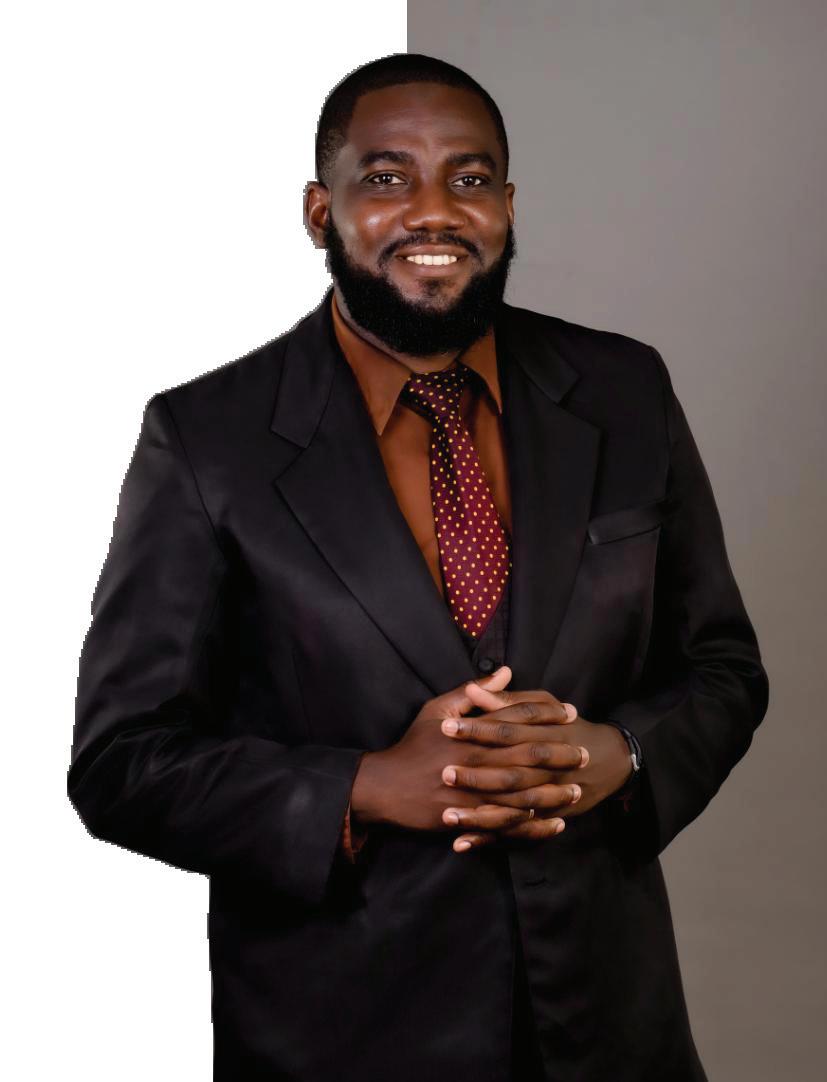


16

f you ‘own a bank account’ and ‘save for a rainy day’- odds are, you feel financially equipped...
If you were to ask the Guyanese population why we shy away from any discussion on Metal Health...

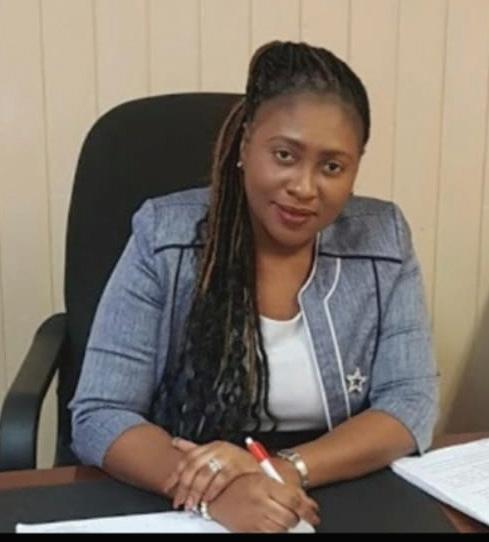
The world of sports is upheld by the foundational pillars of equitable competition...
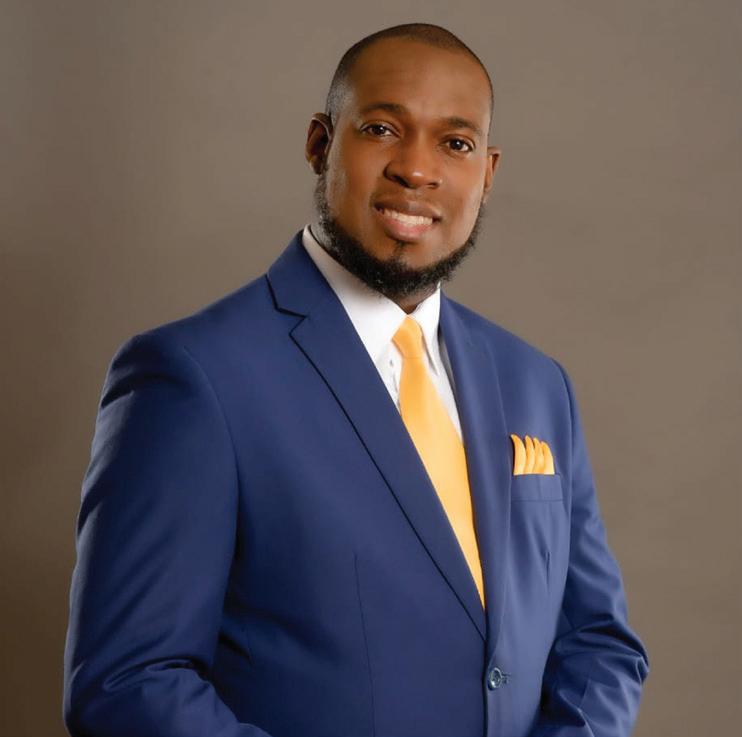
Ifeel better now that I’ve been able to get that off my chest. Over the years, the mispronunciation of this word...
The 21st century has seen its fair share of significant events that have left an indelible mark on Christianity.

Assistant Pastor Kurt Corbin
Dr Robert Lee
Minister Maxwell Nurse
Sister Sasha Nurse
Minister Adeola Pinder
Sister Margaret Adams
Sister Nicole Jackman
Sister Vanessa Devonish
The ushering in of the Information Age and with its concomitant flow of a preponderance of views...
Minister Vanessa Thompson
Reverend Anthony Semple
Brother Aubrey Sultan

Guyana is distinguished as one of the most heavily forested countries in the Caribbean...
od equips his people with talents to serve others “so that the body of Christ may be built up...
The Church has been given a diplomatic assignment to send forth ambassadors to preach the Gospel to the ends of the earth...
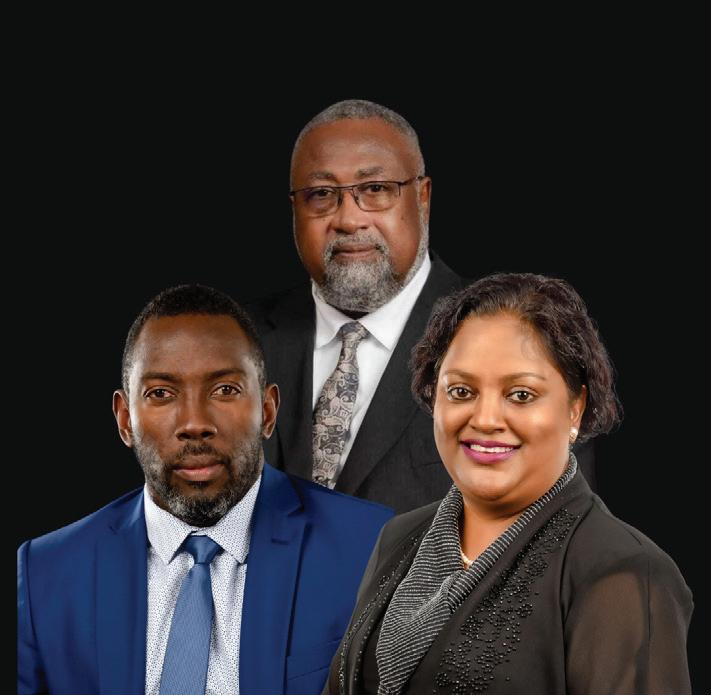
Pastor David Hermonstine
Assistant Pastor Dellon Thompson
Sister Imani McKenzie
Dr Kezia Lee, MD

Dr Kim Kyte-Thomas
Sister Latevia Williams
Minister Lemar Williams
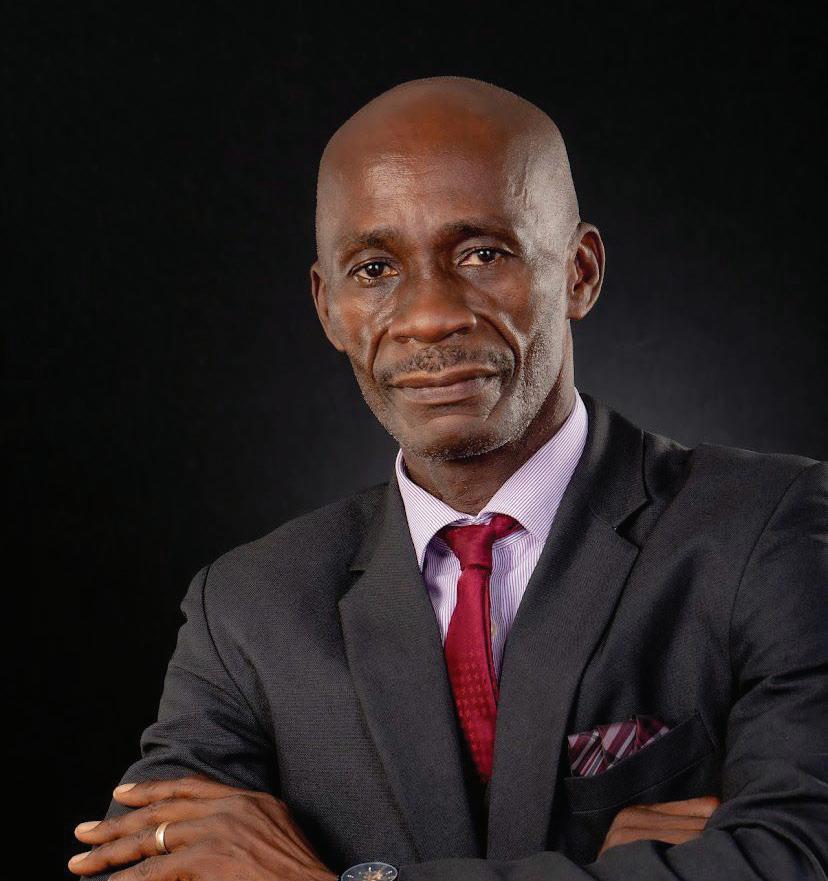
Brother Martin Watson
Minister Shevone Corbin
Dr Wilbert Lee
Brother Yaphet Jackman
First Assembly of God Wortmanville
L&P Durban Street, Wortmanville
A First Assembly of God

Production
All Rights Reserved

Many woeful tales are told of people who lose their lands to absolute strangers or relatives who occupied the land for a period of time. Many of these feuds and battles wind up in the land or criminal courts.
What therefore is this thorny thistle of title by Prescription and what elements must be established to the court to justify defeating the claim of a paper title holder to his land?
The Title to Land (Limitation and Prescription) Act (Guyana), chapter 60:02 as amended by Act No. 6/2011 section 3 provides –

‘3. (1) Where the Court is satisfied that the right of every other person to recover land or any undivided or other interest in land has expired or been barred and the title of every person to land has been extinguished, title to the land may, subject to subsection
(2), be acquired –
A. By sole and undisturbed possession, user or enjoyment for not less than 12 years;
B. If possession, user or enjoyment is established to the satisfaction of the Court; and
C. If possession, user or enjoyment was not taken or enjoyed by fraud or by some consent or agreement expressly given for that purpose
(2) State land, Government land, land wholly owned by State entities including companies and corporations or in which the controlling interest is vested in the State and any land identified by law or on a plan drawn and approved in accordance with any law for reserves for the public interest and benefit or to any undivided or other interest in any land in this subsection is expressly excluded and shall not be acquired by prescription through adverse possession.’
Thus a Landowner can usually take action to evict a squatter from his land. However, if he delays taking action for 12 years he could lose his right to sue because his action will be time-barred. This effectively leaves the squatter with a superior title to the land since the true owner has slept on his rights. The case of Treloar v Nute [1977] 1 All ER 230 at 234, is exemplary.
It should be noted that state and government lands are excluded from this provision.
A person claiming adverse possession must establish to the court the following prerequisites:
by Dr Kim-Kyte Thomas• The occupation was of a kind which showed sole and undisturbed possession user and enjoyment deliberately adversely and exclusively exercised,
• Was for at least 12 years
• Was without fraud
• Was not the result of some consent or agreement expressly made or given to allow such occupation without adverse consequences.
• That the petitioner had the necessary animus possidendi, i.e intention to possess the land.

The Caribbean Court of Justice in Toolsie Persaud Limited v Andrew James Shivlochniesingh and the Attorney General of Guyana 2008 CCJ 5 (AJ) examined the Title to Land (Limitation and Prescription) Act (Guyana), chapter 60:02. The court in paragraphs 27 and 28 explained the concept of possession as follows: -
“The question is simply whether the Defendant squatter has disposed of the paper owner by going into ordinary possession of the land for the requisite period without the consent of the owner… except in the case of joint possessors, possession is single and exclusive, therefore if the squatter is in possession the paper owner cannot be…”
Thus, paper titleholders must note that the concept of possessory ownership is real, lawful, legal and enforceable. In Sarajbeet Ramlakhan v Boodnie Farouk 21 WIR 225 at 229, Chief Justice
Bollers explained the nature of possessory rights - “they had what is known as a crystallized possessory title or as it is sometimes called, a parliamentary title which was transmissible and/ or inheritable, and which they could legally dispose of to the Petitioner, the effect of the adverse possession for the statutory period being the destruction of the title of the person who had been dispossessed.”
Hence in Guyana, it is adverse possession for the statutory period which confers crystallized possessory title, not the declaration of the court. The case of Re Transport, Reece to Neilson (1917) LRBG 126, illustrates this position. The declaration from the court just clothes the occupation with legal garments.
Further, it should be observed that the possessory title is both alienable and inheritable. Thus, it can be transferred or form part of a deceased person’s estate.
A closer look at the quality of the possession reveals that the Petitioner must establish to the Court that possession is nec precario (adverse) to that of the Paper titleholder. Caribbean Author and Scholar Gilbert Kodilinye in his book Commonwealth Caribbean Property Law notes at page 247 that this requirement is crucial to the applicant’s case.

The Possession must not be grounded by way of family arrangement since in such a case the possession will be by consent unless there is evidence sufficient to rebut the consent. This was illustrated in the case of Scantlebury v Young (1948057)
1 Barb LR 23.
Neither can it be grounded on a lease. The case of Ramnarace v Lutchman 2001 Privy Council Appeal no 8 of 2000 (unreported), demonstrates this point. The right of action against a landlord does not accrue until the lease comes to an end -section 9 of Title to Land (Prescription and Limitation) Act (Cap. 60:02). (Guy).
The following cases establish that a sufficient degree of exclusive physical control is required-


1 Powell v Mc Farlane (1977) 38 P & CR 452 pp 471,472; and
2 Rosalene Giddings and Clarine Dillon et al Civil Appeal No. 3 of 2007. See the Honourable Justice of Appeal Yonette Cummings Judgment.
The winner of the battle depends on the evidence adduced to the court and the paper titleholder should note that the law grants to him a right to file an opposition to the Petitioner’s Petition and defend his title in court. The courtroom is the best venue for the fight and people are urged to take the battle there.

God is a God of order, period. One should never take for granted the words of the servants of God nor trivialise the wisdom or instruction that come from their lips. It is simply a system of spiritual authority that God has instituted. According to Romans 13, all authority comes from God and is endorsed by Him. Further, 1 Timothy 2:1-2 clearly exhorts that prayers be made for kings and all those in authority; that we may lead a quiet and peaceable life in all godliness and honesty.
Spiritual authority is a different kettle of fish, where it is part and parcel yet surgically distinguished from the general authority given to every believer in the Lord Jesus Christ (Mark 16:17-18). God Himself releases to his servants a unique brand of authority in the realm of the supernatural, where extraordinary miracles, breakthroughs and sanctions are authorised.
These servants, including but not limited to bishops, apostles, prophets, evangelists, pastors and teachers, are separated by God for His purposes and so endowed (Ephesians 4:11). This authority is so exclusive and powerful that both the holder and those who interface with it must be mindful not to be taken by pride or disdain. Depending on how it is approached, it could be the difference between life or death, increase or lack, sickness or health, blessings or curses.
From a divine perspective, a delicate deference should be attributed to those who function in this office. One should even be careful how they disagree or oppose a person who serves in this capacity. However it does not mean they should be a law unto themselves or are always right or even perfect. They are, after all, human. Perhaps in many instances, the concept and fleshing out of the role of servant or Man of God has been so abused that people trample on it and bundle it all as worthless but still to their detriment and demise.
Yes, it should be treated as an office where respect is given to the office over the person who holds the office. Personalities may come prepackaged of course, with inherent idiosyncrasies, flaws and approaches. The individual may also have come from a background of affluence, refined, with innate and acquired gifts, skill sets and influence. Whatever the case, caution and balance must always be exercised when treating with such spiritual authority.
socially disgraceful disease: leprosy. Few knew of his condition, which included a servant girl who was captured by an army led by the said general. She told his wife she knew a servant of God who could heal him of the disease. Connections were quickly made, and protocols were established for a meeting between the two.
In short, the high and mighty general, arriving with pomp and circumstance, was distraught when he was greeted and instructed by the servant of the Man of God, an apparent violation of protocol, to go dip in a filthy pool called Jordan. His pride was severely affected as he complained about how he was greeted and even mentioned several other places he could have gone to dip that were consistent with his pedigree. It is amazing how he relegated the instructions from the servant of God based on his widely myopic perception. Thank God for the little girl who helped recalibrate his reasoning, which resulted in him obeying the very instructions given.
The general was so grateful for his healing that he sent material blessings to the Man of God who refused them. What was mind boggling and a significant turn of events however, was that the servant of the Man of God took the items, and when the Man of God found out, he transferred the leprosy that was on the general to his servant.
Familiarity is often a very high hurdle to cross regarding spiritual authority. Often, family members and other persons who may be privileged to come close forget that this same person with whom they laugh and constantly interact, see their ups and downs, flaws and shortcomings, is the same person who functions in this office. The distinction must therefore be deliberately and consistently made if one will remain on the right side of spiritual authority.
A general, who obviously had all the trappings and backings of the state from which he came, was grievously afflicted with a
It is glorious that the omniscient, omnipresent and omnipotent God chose to wrap such access to the supernatural in the human body. Spiritual authority should not be trifled with but treasured. It should be approached and unravelled with godly wisdom to unlock the resources needed to navigate this life.

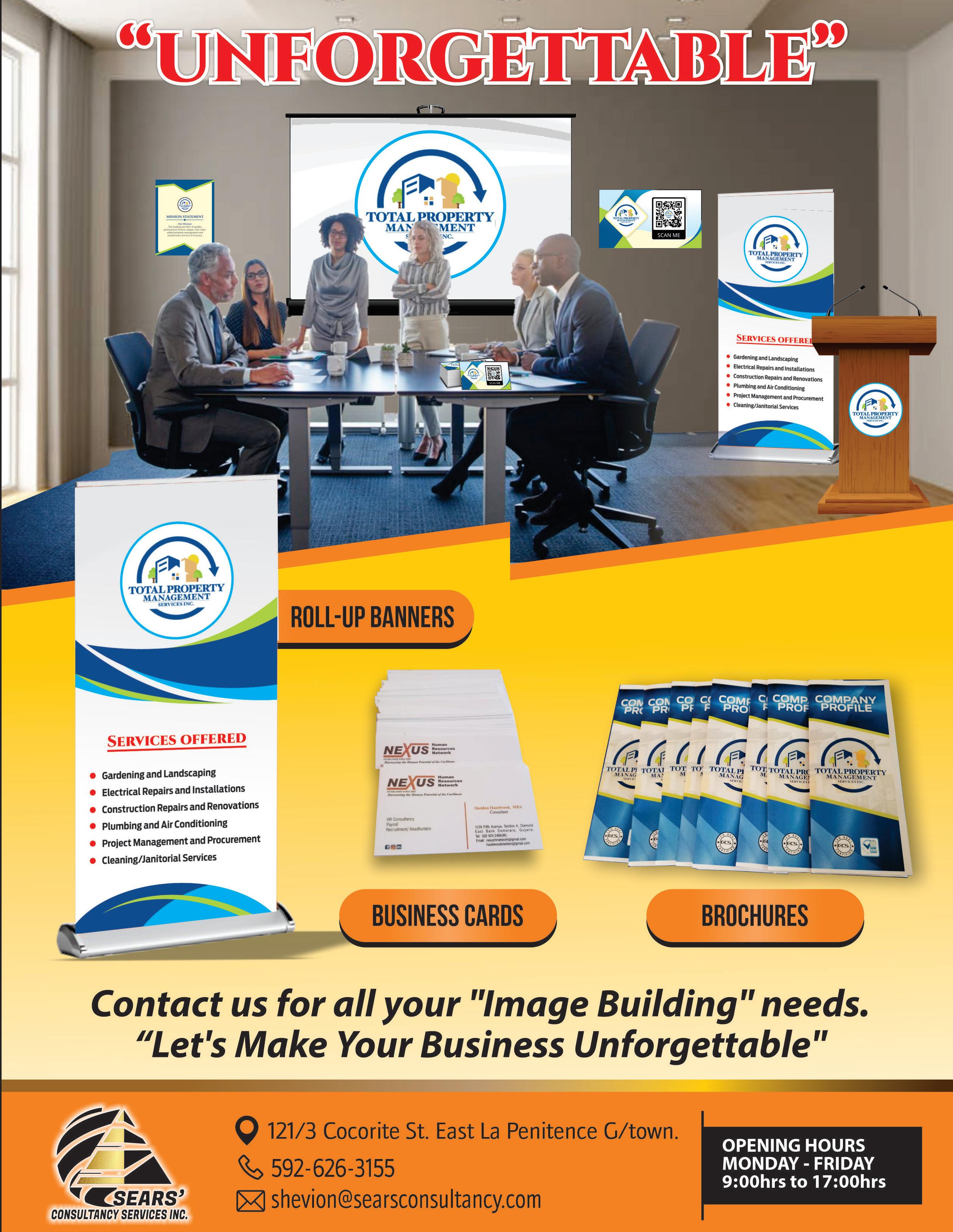
Edward Jenner made history in 1796 as the founder of vaccinology when he inoculated a young boy with a vaccine created from cowpox pustules leading to vaccination against smallpox and later, eradication of the disease. Though not the initial vaccine, Jenner’s actions caused the use of vaccines to become widespread and paved the way for groundbreaking initiatives by several giants in Medicine, including Louis Pasteur’s 1885 rabies vaccine.
The Centers for Disease Control and Prevention (CDC) defines vaccines as: “a preparation that is used to stimulate the body’s immune response against diseases.” This involves introducing into the body a particle or remnant of an infectious microorganism in a small quantity, enough to stimulate the body to identify and respond, but not in sufficient quantity or potency to exacerbate the infectious process.

Vaccines can be given orally or by injections, and most vaccines have minor side effects which mainly result from the body’s response and not components of the vaccine. Side effects may include low-grade fever, redness or pain to the vaccination site, vomiting, diarrhoea, headache, and mild body and joint pains. Rarer and serious side effects may also occur from allergic reactions to vaccine ingredients.
Currently, COVID-19 vaccines are considered the most contentious. These vaccines include the mRNA vaccines, Pfizer and Moderna, with the major side effect of myocarditis. Non-replicating viral vector COVID-19 vaccines include Johnson and Johnson, Astra Zeneca, and Sputnik V, with major side effects of blood clots. The whole virus vaccines include the Sinovac and Sinopharm, and finally, the protein subunit vaccine, Novovax.
Prior to the COVID 19 pandemic, vaccination of the at-risk population for many diseases was prioritised. These persons are deemed the most vulnerable and would logically benefit from the most protection. At-risk persons include pregnant mothers, the elderly, persons with chronic illnesses, such as diabetes, kidney disease, cancer and HIV. The presence of chronic illnesses does not disqualify affected persons from receiving COVID-19 vaccines. In fact, the opposite is true as this population is in dire need of vaccination.
The Journal of American Medical Association (JAMA) reported findings from a small study of babies born to mothers vaccinated against COVID-19 during pregnancy that showed vaccinated
by Dr Kezia Lee MD, MMed Paediatricspregnant mothers were able to confer to their offspring a higher level of immunity against COVID-19, as opposed to those who were not, with even higher levels of immunity when vaccination occurred closer to delivery. Vaccination during pregnancy has not been proven to result in any ill effects in mothers.
Findings from a limited study published in Cell Reports, an openaccess journal, suggested, “vaccination is particularly valuable for people who have already had COVID-19, ensuring a robust immune reaction if the virus finds them again.” It concludes that even if you were previously infected with COVID-19, vaccination after the fact confers a higher immunity.
Booster shots, which are administered to more than 90% of the population from infancy, are a common occurrence in medical practice. Due to waning of the vaccine’s effectiveness on the immune system, in some cases, boosters are required after shorter periods, others can be administered over longer intervals, and some, such as the flu shot, may be seasonal.
In September 2021, a statement from Pfizer, BioNTech Company, indicated: “The safety profile and immunogenicity data in children aged 5 to 11 years vaccinated at a lower dose are consistent with those we have observed with our vaccine in other older populations at a higher dose.” Data from the study showed there were high levels of antibodies present which is comparable with vaccination in the older population. There is no current conclusive evidence with regards to vaccination in children under 12, and Federal Drug Administration (FDA) approval remains pending.
The effectivity of COVID-19 vaccines varies between 60 and 98 percent. According to UpToDate, a well renowned medical site trusted by physicians worldwide, “Nevertheless, all the available vaccines are highly effective, substantially reduce the risk of COVID-19, especially severe/critical disease, and have been associated with substantial reductions in COVID-19-associated hospitalisations and deaths.”
The Choice
Jab, or no jab, is a personal decision, but one with local, regional and international implications. Equipping ourselves with accurate information from reliable sources is crucial to the health and wellbeing of individuals, loved ones, neighbours, community and the entire human population at large. According to Benjamin Franklin, ‘An ounce of prevention is worth a pound of cure.’
REFERENCES

https://www.cdc.gov/vaccines/vac-gen/imz-basics.htm
https://www.medscape.com/viewarticle/968048
https://www.medscape.com/viewarticle/959089



https://www.uptodate.com/contents/covid-19-vaccines
https://www.historyofvaccines.org/timeline/all
Time, the only currency that God gives to man equally... the rich, the poor, the good and the bad. whatever you spend most of your time doing, that also you are likely to become. it depends on what you are doing.

Teaching your children the word of god is one of the stepping stones for them to seize an opportunity




A personal relationship with god prior to praying and praising god is absolutely necessary throughout the course of the day to develop and know god’s voice and not hear yourself talking to you.




lot of background research is another principle.
LORD I THANK YOU TODAY THAT I HAVE LIFE TO PREACH AND TEACH YOUR WORD.
Communication through fasting, praise and prayer is an exercise to build a relationship and is a great enhancer of your faith through spiritual growth. Apart from the infilling of the holy spirit, we should crave the gifts of the holy spirit.
THE INFILLING OF THE HOLY SPIRIT ABOVE ANYTHING ELSE IS what BELIEVERS NEED TO HAVE TO SEIZE EVERY POSSIBLE OPPORTUNITY To
Many educational programmes culminate in a graduation ceremony with pomp and exhilaration. Commencement speakers typically challenge graduates to go forward boldly into the future and use their education to create change. It is essentially a motivational charge to inspire graduates to apply the knowledge and experience that they have acquired over a period of studies to make an impact in the world.
Jesus, the Master teacher, likewise commissioned his disciples to go into the world to create change. “Go into all the world and preach the gospel to all creation” (Mark 16:15). Unlike the guest speakers at graduation ceremonies however, His authority is sovereign. “And Jesus came and spake unto them, saying, All power is given unto me in heaven and in earth.” (Matthew 28:18). Jesus the teacher did not deliver motivational speeches. He was intentional. His own life exemplified humility and is indeed the proverbial blueprint for us to follow. In the account of the Scriptures, the King of kings consistently identified with the people He served, and as He revealed Himself, eyes were opened to the manifestation of God’s love. He was love personified (John 3:16) and His ultimate sacrifice paved the way for eternal life for all. But how will they know if we do not tell them?
We are all called to evangelise and the Gospel is certainly not exclusive. It is intended for all peoples, in every corner of the world, rich and poor, Jew and Gentile.

Amazingly, Jesus called only twelve disciples and replaced one who ultimately became ‘the son of perdition’ (John 17:12). Throughout the accounts of their time together, we observe the intentionality of Jesus as He disrupted the status quo by handpicking this very unlikely group of people to build His church. We cannot help but be intrigued by His unparalleled ability to spot potential and challenge it to shine. Jesus was mission-oriented. He was acutely aware that His mission was to ‘go, so the Comforter can come,’ (John 16:7 and Acts 2:3). Jesus, The Creator came as a man to empower us to ‘go’.
As Believers, we are challenged to follow the leading of the Holy Spirit to ‘go’ in the direction of God’s calling on our lives.
by Pastor David HermonstineUndoubtedly, there are many roadblocks to fulfilling this mandate. The world system, through state-controlled mechanisms and so-called unions of nations, propagates agendas and lifestyles contrary to and often in direct opposition to the Word of God. These include:
• Laws that prohibit the Gospel and punish missionaries
• Promotion of alternative lifestyles and family life
• Promotion of inclusive belief systems, and
• Misrepresentation of the Word of God.
According to research, of the world’s 17,440 distinct people groups, an estimated 7,414 groups (or 42.5 percent), are still considered unreached by the Gospel (The Joshua Project, 2022). These numbers paint a startling picture and put the urgency to act into perspective. To continue to reach the lost, we are challenged to wholeheartedly embrace God’s Word instead of man’s ideology.
Being a change-maker requires preparation and persistence. We must first know the Word of God in order to teach or share It. And to teach or share It, we study It carefully and prayerfully meditate on It, ensuring that our faith is grounded so we can effect that positive change. The change God charges begins in our own lives, and this inward change empowers us to share the love of God.
Ultimately, the Gospel will be preached to all nations (Matthew 24:14). Wouldn’t you like to be named among the obedient ones who answered the ‘challenge to change’?
Iam one with the land and the land is one with me am one with the land and the land is one with me am one with the land as far as the Harpy eagle can see
See, now what do you see when you see me? A product for a profit, is that why you tried to sell me? Pennies for your pockets, and add my weight to your currency?
I see the beast in the priest so I reject your diplomacy Your flower painted cage just isn’t the right fit for me
For I was born in the land of the mighty Roraima Might is my armour, I’m one with the Jaguar
We are one with the Amazon, warriors and conquerors God bless me Lord Jesus, send no prey for the predators


I am one with the trees, the Lilies, what a flower Beauty in transition, she just glides on the water Pink flower, white flower you can be whatever Victorious, Victoria I live and die your defender
I am one with the river as she bows unto majesty 741 feet, one drop to your destiny She grips your interest and fuels your curiosity
You can come from the ends of the world and still can’t take her away from me
So what do you see when you see me?
Do you see my perspiration of gold dripping to the ground? Waiting to be found?
Have you noticed the precious minerals protruding from my eyes when I cry?
Can you barrel my passion in a container?
As my heart pumps out oil for the future
Don’t touch! For I do not belong to any one of you I pledge myself to honour always GOD!
For I am one with the land and the land is one with me I am one with the land And we are
As the Golden Arrowhead waves in the breeze Free!
I am one with the flag and the symbols of a nation I am as RED as the blood shed, with zeal and potential Dynamic in nature, I will build this nation!

As BLACK as the power that endured to salvation Slavery or indentureship, I will not drink that portion
GOLDEN as an arrowhead my wealth is my vindication Touch me without a warrant and there will be repercussions
WHITE as the light, my waters bring to life I’m refueled! I’m refreshed! it is hope that I incite!
I am one with the life that lives in the forrest GREEN in my eyes the beauty is flawless
Fly flag, fly! Your children are free Wave flag, wave And make us to be More worthy our heritage Land of the free
If you ‘own a bank account’ and ‘save for a rainy day’, odds are, you feel financially equipped to manage your finances, but bank interest rates have stagnated below 2% and inflation continues to erode the value of savings. This metric of financial education is woefully inadequate, and according to a global survey (Standard & Poor Global FinLit Survey 2015) 3 in 5 persons with bank accounts are not financially literate.
The current economic system requires this generation to be able to navigate bank loans and mortgages, but our financial teachers — our parents — were raised by a generation that mainly rented homes or constructed simple structures with savings and community self-help. Car ownership was uncommon, furniture was sourced using cash or on lay - away (smaller prepayments); and expensive university fees were not on the cards. Now, access to credit cards, online shopping, and stock options place more financial products at our disposal, and require even more complex decisions.
To avoid the perpetuation of generational consumerism, conversations on wealth creation must be had, beginning with the basic question: What does financial literacy mean? In simple terms, financial literacy is the ability to understand how three concepts work: (1) interest rates, (2) inflation and (3) risk diversification.
Reportedly, the 2015 global financial literacy rate is 33%. This is not comforting, and underscores a deeper issue plaguing many societies, both the wealthy and economically deprived.

Some financial literature have extended the definition of financial literacy beyond understanding the basic financial concepts, to a person’s confidence in using knowledge to make effective decisions. This definition emphasises financial behaviours and lifestyles (spending habits and financial choices) which are sometimes as deeply rooted as diets inherited from parents.

The Scripture admonishes, “The wisdom of the prudent is to discern his way…,” Proverbs 14:8 (ESV). Poor financial lifestyles can be improved by examining root causes, thereby enabling the design of solutions for families, and systems of education, including church programmes. Findings from a 2005 survey of couples attending a premarital class at First Assembly of God Wortmanville (FAOGW), found less than 20% of the couples admitted to talking about money matters as part of their marriage plans. There are also accounts of academically inclined individuals with no inkling of how mortgages work for homeownership, compared with streetwise persons who own properties and businesses leveraging mortgage debt. These examples demonstrate that academic literacy does not necessarily translate to financial literacy, and the likely perpetual cycle that could result when couples begin the financial journey in silence.
In spite of these dire trends, there is hope! Solomon has been trending financial literacy tips in Proverbs 21:5 (NIV), “The plans of the diligent lead to profit…” This tip underscores that wealth creation needs to be an intentional plan and conversation in our homes! Here are some solutions, underpinned by Kingdom principles, that can be explored:

↘Write down what you earn and spend then set new financial goals aligned with your education, career, and family plans.
↘Create a 1-year or 5-year plan including generation of a second income. This should include spiritual goals such as tithing and first fruits.
↘Challenge: Start writing a simple budget on Post-it notes this month.

↘Be disciplined in spending and budget for vacation and recreation as part of your wellbeing plan.
↘Set mental spend limits before heading to the mall or determine to invest your next bonus in something that generates income or value to property.
↘If earning a second income require new cash flows, consider a mortgage, business loan or traditional box-hand. Be aware that not all debt is bad.
↘Finally, ask questions or search online for guidelines to becoming financially savvy.
↘Pay your tithes and offerings, pay yourself (savings) and settle debts (credit cards, loans, hire purchase or leases, etc.)
promptly. ↘Delaying debt repayment can lead to increased interest charges and high penalty fees, so advance loan payments in good times and request a restructuring in lean times..
↘Payback also means owning big overspends, as denial will sink you deeper into debt. When you overspend, just adapt your budget or tighten the belt in future months. Own it!
In all this, we can celebrate the work of our local church in promoting financial literacy and wealth creation through several platforms; from the pulpit and within ministries such as the Women’s Investment Webinar. Sharing financial pitfalls and successes should not be tabooed. It is our hope that this edition will initiate the conversation on financial literacy in families and our systems of learning (i.e., Sunday School, Youth Ministries, etc.).
Supposed you had $100 in a savings account and the interest rate was 2% per year. After 5 years, how much do you think you would have in the account if you left the money grow?
• More tha $102
• Exactly $102
• Less than $102
• Do not know
• Refuse to answer
Image that the interest rate on your savings account was 1% per year and inflation was 2% per year. After 1 year, how much would you be able to buy with the money in this account?
• More than today
• Exactly the same
• Less than today
• Do not know
• Refuse to answer
Please tell me whether this statement is true or false. “Buying a single company’s stock usually provides a safer return than a stock mutual fund (i.e. multiple investors and stock options)”
• True
• False
• Do not know
• Refuse to answer
Answer to questions above: Q1. More than $102 Q2. Less than today Q3. False

If you were to ask the Guyanese population why we shy away from any discussion on mental health and mental illnesses, there would undoubtedly be varying answers, but the overriding consensus would be that there is a stigma attached to these words. Culturally, we have been conditioned to downplay the seriousness of mental health issues largely because of a lack of knowledge. There is also an unwillingness to be educated on this seemingly taboo subject although there is evidence that it permeates our society and has affected every family in some form or the other.
Physical health and mental health rely on each other despite some biased views. According to Deaconess Audrey Corry, a retired Matron and Director of Nursing, “Mental health is a public health issue.” She pointed out that it is essential to note the thin line separating mental health and mental illnesses. Mental health strives to retain an individual’s entire mental faculty and function. It includes our emotional, psychological, and social well–being and affects how we think, feel, and act. Often mild, like in cases of anxiety, it can be solved with basic help. However, when such issues are left unchecked, are prolonged, or without relief, they can lead to mental illnesses, like severe depression, resulting in self-harm, admission to a psychiatric facility, or long–term therapy.
by Latevia Williamsare very quick to attach medication as the solution.” The church then needs to become a nexus in this fight that affects more and more of our population. She added, “Not only can the church offer prayers, shelter, and necessities like food and clothing, but a place where mental issues can be addressed professionally by trained counsellors.” Minister Thompson stressed that the church must first begin by educating its community. She believes that by doing so, the barriers of misconception will be broken and discriminatory approaches to those who need assistance will change.
Audrey CorryMental health is vital at every stage of life, from childhood and adolescence through adulthood. The COVID -19 pandemic has caused an upsurge in cases of mental illness, requiring a greater need for trained professionals in the mental health field. Whether adults or children, being in lockdown has contributed to mental health struggles for many. Deaconess Corry emphasised the need for the formation of programmes to help those struggling — programmmes that will allow them to freely discuss what is affecting them, and also provide them solutions to fit their daily routine, whether their issues are fleeting or prolonged.
Minister Vanessa Thompson, a trained counselling psychologist noted, “We don’t place enough significance on addressing mental health challenges, and when we do address these problems, we

Mental health is not a new issue. There are instances in the Bible where mental illnesses or harmful thoughts are stated. Moses and Elijah, for example, experienced feelings of helplessness and desired death (Numbers 11:10-16, 1 Kings 19:1-18). Further, Proverbs 12:25 (NKJV) states “Anxiety in the heart of man causes depression, But a good word makes it glad.” However, good news comes to all who find themselves in that place, since in Matthew 11:28-29 (NIV) , Jesus lovingly encourages us to “Come to Me, all you who are weary and burdened, and I will give you rest. Take My yoke upon you, and learn from Me, because I am gentle and humble in heart, and you will find rest for your souls.”
‘Read your Bible, pray and fast’ has been the traditional response of the church. While it holds indisputable spiritual merit, it must be accompanied by the encouragement to those suffering mental issues to talk about the problems that affect them. As it is acceptable to go to the doctor to address physical illnesses, we must encourage persons when they recognise that they are being mentally challenged to also to seek medical intervention. Minister Thompson added that while providing the appropriate avenues to deal with mental crisis, it is also crucial that the church reiterates that seeking professional mental help is not a sign of weakness, nor does it indicate a lack of faith and trust in God. Like we trust God for our physical health, we should also trust Him for our mental wellness. Minister Thompson pointed out that the church has a role in establishing the support needed to create awareness
“Mental health is a public health issue“
about mental health. She emphasised it is also important to remember that change may not happen overnight, but over time.
is currently underway; this will allow identified leaders to minister continually to those who suffer from mental health issues.

The church has always been a safe haven for those who seek help, and now with trained personnel available to educate, counsel and recommend referrals in the area of mental health, the church can become a viable option for those struggling. First Assembly of God is proactive in its approach to bringing awareness to mental health and destigmatising the issue, not just locally but also in the diaspora.
Since the pandemic, the First Assembly of God Church has made it its mission to offer support to the community through social, physical and psychological assistance. The church continues to advance Children’s Church, Sunday School sessions, and parenting programmes. First Assembly and its outstations, along with other Assemblies of God churches, participated in a mental health training programme before the pandemic. Bishop Dr Murtland Raphael Massiah, foresaw the need for trained individuals, especially in the church. He insisted on mental health focus and partnered with the Ministry of Health to provide relevant education and training. A more focused mental health programme
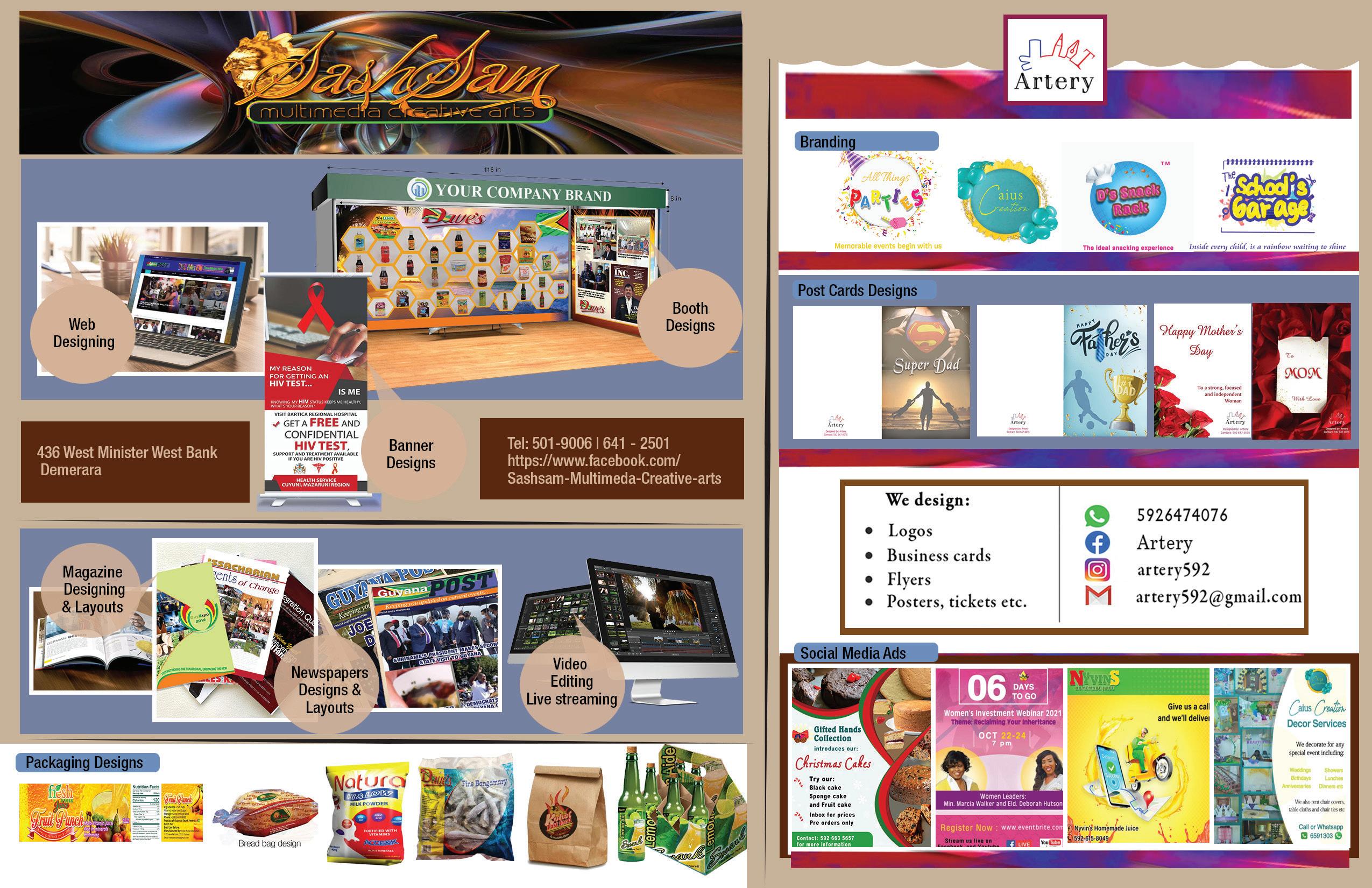
Research shows that as the conversations and knowledge on mental health and mental illnesses increase, people are significantly less likely to have prejudiced thoughts about those suffering from mental illnesses (Wei, Y., McGrath, P. J., Hayden, J., & Kutcher, S.2015).
Let us begin small by encouraging those who may need help to seek help without judgement and preconceived notions. Let us create conversations about mental health within our circles that can spread into national dialogue and effect change.

“We don’t place enough significance on addressing mental health challenges....“
Vanessa Thompson

The world of sports is upheld by the foundational pillars of equitable competition and fairness in participation. These pillars are supported by rules and regulations that create uncertainty of outcome for an event. However, cheating is a major problem for sports. Cheating is viewed as a quest for an unfair advantage over an opponent 1. It may occur through commissions, where to achieve the highest rewards, some athletes partake in deliberate actions, such as using steroids to boost speed in a race and pre-empt outcome. It may also occur through omissions where athletes deliberately fail to do something they should have done, for example, not returning punches in a boxing match, to intentionally influence the result.
This article focuses on doping which may be defined as ‘the use of certain prohibited substances and methods that have the effect or potential effect of enhancing sporting performance 2.’ Doping falls primarily in the realm of commission, although an athlete may be deemed a drug cheat for an omission such as failing to report for a mandatory drug test.

Contrary to a strict definition, the World Anti-Doping Agency established a prohibited list of the nuanced concept of doping. Articles 2.1 to 2.10 of the World Anti-Doping code include methods such as doping by mechanical means, blood transfusion, use of steroids, gene doping and various substances to enhance performance.

Generally, this pervasive problem is found at the individual level but may also exist at the state level as in the case of the Russian state-sponsored doping allegations 3. Furthermore, doping cuts across several sporting disciplines as evidenced by Rio Ferdinand in football (omission); Sha’Carri Richardson, in athletics (commission); and Njisane Phillip, cycling (commission) 4
Regardless of the level or form, doping presents a major problem for sports for multiple reasons. Firstly, doping provides an unfair advantage by dramatically increasing the likelihood of average competitors winning an event through the use of performanceenhancing drugs or mechanical tampering. One may argue that sports are built on unfair natural advantages. For example, Michael Phelps, who dominated swimming for more than a decade, is double-jointed, has an extra-long torso, and produces less lactic acid than average athletes. This begs the question of why average athletes cannot secure similar advantages by artificial means?
Secondly, doping has detrimental effects on athletes’ health, with many athletes suffering severe injuries due to consistent doping. This too, is debatable, particularly since the International Association of Athletics Federation (IAAF) and other institutions mandated to protect the health of athletes require female athletes with high testosterone levels to use suppression drugs in order to participate in certain sporting events. These drugs are believed to have severe side effects, such as depression, hepatitis, liver injury, and birth defects.
Thirdly, doping undermines interest in sports and damages its reputation. Many spectators felt betrayed by Lance Armstrong’s guilt 5. Another notable example is, after being found guilty of doping, Justin Gatlin defeated sprint legend Usain Bolt at the 2017 world championship; spectators booed his victory and gold medal ceremony 6 .
The complex legal issues surrounding doping and sports negates straightforward solutions. How can cheating be prevented, and how should the law deal with cheats? Often defaulting athletes are banned and face sanctions from relevant governing sporting organisations. However, in addressing the issue and making appropriate judgements, sporting bodies must also be cognisant of the legitimate rights of individuals. This is demonstrated in the

(5) https://www.bbc.com/news/magazine-21077727

(6) https://www.bbc.com/sport/athletics/40842008
(7) Pechstein / Mutu v. Switzerland, October 2, 2018
case of Pechstein/Mutu v. Switzerland 7, where an athlete failed a drug test but challenged the court process.
Furthermore, there are difficulties in regulating doping because punishments are not severe enough, resulting in some athletes such as Gatlin being found guilty of cheating twice. There are also ongoing discussions surrounding the applicability of international versus local laws in addressing specific doping incidents and cheaters who commit criminal activities.
Whether doping will ever be completely prevented remains a burning question. Indeed, it is a polarising issue with some asking whether it is inherently bad or how it is viewed. One position advanced regarding the prevalence of doping, especially in the Tour de France, is the solution of permitting athletes to dope to solve the issue altogether. There are no straightforward answers to the many questions that surround doping in sports, but one thing for sure is that it is a problem. We are reminded, “…whoever knows the right thing to do and fails to do it, for him it is sin.” (James 4:17. ESV)
Ifeel better now that I’ve been able to get that off my chest. Over the years, the mispronunciation of this word became a pet peeve of mine, and this column has now given me the opportunity to address it head-on in the most “me way” possible.
‘Wha Yuh Watchin’ is an opinion column with an aim to enable its readers to become active viewers of movies & cinema, with an understanding of the industry’s process, philosophy and best practices. Think of this column as my journal to you on the collective experiences of the movie industry, informed by my upbringing in Guyana and my career in the USA.

Great! Now that you know my pet peeve and what this column intends to do, if you’re still reading, WELCOME to my first installation of ‘Wha Yuh Watchin’
I’ve asked myself several times, ‘why would a Guyanese deliberately butcher a word in jest?’ Remember, it’s FILM eh! The only answer that I’ve come up with is, apart from our love to be funny about all things, most simply don’t understand the distinction, much more the differences, between the following: Movies vs Film vs Cinema.
Do you know the difference between the 3 words? For the sake of this column, let me operationally define them so we can eliminate any confusion.
What is a Movie? According to the Webster’s Dictionary, a movie is a recording of moving images that tells a story and that people watch on a screen or television: MOTION PICTURE.

Ok - Simple enough!
What is Film? Film or Far-Infrared Line Mapper is a thin, flexible strip of plastic or other material coated with light-sensitive emulsion for exposure in a camera, used to produce photographs or motion pictures.
What is Cinema? I really wanted to consult Webster again, but their definition of cinema was very cut and dry. So, according to the Collins Dictionary, cinema is the business and art of making movies.
These words have held different meanings for audiences around the world. All are used interchangeably according to your taste in content consumption. I’m sure you want to say, “Well, I knew
that already! I’ve learned nothing here.” If that’s the case, let me offer this. Although the Collins dictionary defines cinema as the business and art of making movies, cinema is much more about the art than the business! Movies, on the other hand, are all about the business, and film is just a dated word because it’s the format that birthed this whole discussion in the first place.
by Yaphet Jackman, MFA - FilmMovies come at a dime a dozen. Today’s technology has made the process of making and watching movies so accessible that the market is flooded with all levels of storytelling and production. Some great stories exist out there, but some of their production is not so great. We see examples of this every day on the streets of Georgetown, Guyana. You’ve seen it. Stands upon stands of DVDs for sale with all types of movie genres — Action, Comedy, Drama, Horror and everything in between in the name of storytelling. All with one aim — to tell a story for entertainment value, to make back the money that was spent to make it — or not.
Now, cinema! We know cinema when we see it. I dare say we can feel cinema as well. In his opinion piece, Bruce Bisbey defines it beautifully: “Cinema attempts to convey or explore something larger than itself. It all comes down to the intention, the philosophy, and the belief systems of the people making them.” Examples of cinema would include titles like Daughters of the Dust, In the Mood for Love, and Mudbound — all titles I recommend you watch if you haven’t already. Unfortunately, the only examples of cinema in Guyana are what we see through our streaming apps or VPNs from across the world. Examples of Guyanese Cinema are very rare. There are very few auteurs and native cinephiles, but that’s a conversation for later on.
Watching movies — apart from eating — is a major Guyanese pastime. Most times, as passive viewers, we watch movies for sheer entertainment and information. Understanding the distinction between movies and cinema will help to inform your choices when thinking about what to watch next. Of course, we can’t leave out documentaries, which is a class unto itself that continues to be the most visually reliable way to explore and investigate anything under the sun.
The hope behind all of this is that we’ll become more progressive audiences that want to see more local content at the levels we consume. The old adage, you are what you eat, comes to mind
I’ve always wanted the opportunity to say this: is nah Flim, it’s FILM!
when I think about the content we consume as Guyanese. We love to watch Netflix, Prime and HBO shows and series, but what if those were all replaced by stories that spoke to us directly as a people or as a region, created and produced by our natives? What a wonderful day that would be in our filmography and history as Guyanese.
Don’t get me wrong! There are hundreds of Guyanese that are doing amazing things at the highest levels of the movie industry. They’re all embedded in a system that supports their intellectual


property, copyrights and incentivises their work to sustain their career & livelihood easily. These systems are not as proficient in our dear Guyana, but day by day, as we take the time to learn about the industry, not just as practitioners like myself, but as viewers like you, we can help build a local industry and economy that would celebrate our own, more consistently!
Thanks for starting this journey with me, and I look forward to sharing and building with you to make ‘Wha Yuh Watchin’ more enjoyable and meaningful.
The 21st century has seen its fair share of significant events that have left an indelible mark on Christianity. One such phenomenon is the advent of the Zoomers Generation. Born between 1997 and 2012, ‘Zoomers’ or ‘Gen Z-ers’ are known for their strength and inquisitive minds. By nature, Zoomers do not ascribe to anything, including ‘new’ values and rules, without first asking questions and being satisfied with the answers. They are a collective who intend to have their voices heard and not be shut down without adequate room to air opinions and observations. In various ways, Zoomers have shocked and baffled many older Christians with their general outlook on life, mannerisms and actions.
Christianity is most times passed down from generation to generation like many other teachings and ways of life. For many Zoomers, there are several unanswered questions about the faith. They may simply go through the motions as instructed to appease parents and elders until they discover Christ for themselves, either through the consistent guidance of older Christians or through an experience that leads to a personal relationship with Him. That gives a new perspective on life and reassures that God is real and present. As young people begin to establish their footing and navigate life’s wild ride, many find that they have doubts about religion and its nuances. This investigative report dives into the psyche of Generation Zs’based on their responses to a specially engineered questionnaire, to gain an uncensored, honest understanding of their views on Christianity.
Currently, the Zoomer generation is aged between 10 and 25. The majority of respondents fell between 18 and 22, providing an image of this intriguing post-adolescent stage of life.
When asked how they discovered Christianity, 87% of respondents stated that family members were the influence, corroborating the earlier observation that overwhelmingly, most Gen-Zers interact with Christianity because of parental sway. Our questionnaire indicated that 68% of the focus group were Pentecostals, while the remaining belonged to other denominations. More than half the respondents were baptised, but only a third are spirit-filled, which begs the question of the zeal among this generation for the Holy Spirit. On church attendance, 40% said that they do so weekly, 13% monthly, 20% quarterly, 20% on special occasions, and the remaining 7% never attended. Although church attendance isn’t the sole marker of a good Christian, it does help to bridge knowledge gaps and encourage persons through a sense of community.
by Martin WatsonWhen the question of ministry arose, it was discovered that only a quarter of the group serve in ministry and do so in the areas of dance, music, and media. The areas of service are no surprise, given the artistic and digital nature of most Gen-Zs. However, it should be of great concern that 75% of Gen-Zs in our churches are not involved in other ministries. Is this an indication of a great generation divide or Gen-Z’s lack of interest in church participation? This finding also signals the drastic difference between attendance and involvement.
Interestingly, on the importance of a personal experience that proves God is real and present, a whopping 67% answered in the affirmative. Testimonies of these experiences ranged from God being a provider in times of dire need, recovery from illnesses, specific prayers being answered continuously, and the memory of being lost as a child in a large social gathering while a small, still voice outlined the way back to family members. One respondent even went into detail about an experience with God that “broke the grip the devil tried to have on my life” to the point of deliverance where God’s peace and love is now “incomprehensible and too deep” for words.
On personal evangelism, a little more than half relayed that they share their faith broadly through social media. However, the topic of Christ and a personal relationship with Him seldomly occurs. Most seemed satisfied to steer clear of frequent conversations on religion. Most respondents stated that their friends’ views on Christianity ranged from essential to their everyday lives to not believing in Christ. Most are intrigued about faith but not enthusiastic about embracing all its practices.
Nearly half of the respondents believe that being a young Christian in this generation is challenging, citing views such as “the older generation just doesn’t get it” and “with what’s going on in the world, it’s just hard to keep the faith and think straight”. Conversely, roughly 30% disagree, stating “it’s very easy” and that youths need to be very resolute in their pursuit of Christ.

Respondents shared that the church can help make being a young Christian easier via sermons and activities conducive to youth. One notable respondent added we should “treat young Christians with respect. Do not shame them for simple mistakes or berate them for their opinions. Show guidance with kindness without being offensive.” Most respondents also shared the sentiment that Christianity needs to evolve lest our youth feel isolated and alienated from the church.

It should be said that Gen Zs are not a lost generation. As the research indicates, many love God and want to serve Him, but they require more than the traditional approach. Zoomers require

creativity and the use of modern technology. Just as our music has evolved through various musical styles such as rap, they believe that the message of Christ can be packaged in a language they understand or identify with. Many believe that there is no need to be in a physical church to worship God (as evidenced by the COVID-19 pandemic), but rather, fellowship can be done together in a digital space.
I believe that Christianity will never be out of style, there are some Zoomers like me who will hold firm to our faith and glorify God, and as a result, “Christianity will always live on.”
Guyana is distinguished as one of the most heavily forested countries in the Caribbean and entire South America, with forest cover spanning a significant portion of the country’s lush landscape. Formerly known as British Guiana during preindependence, Guyana is positioned on the Northern Atlantic Coast of South America. Dating back to the period of colonisation, Guyana was recognised for its potential in the food production industry (Country Facts, 2022). Generally, Guyana is known for the production of two primary foods, rice and sugar. Still, the list quickly expands to food items such as cocoa, coffee, coconut, copra, and a medley of fruits and vegetables (FAO, 2010).
Guyana boasts the largest, pristine rainforest in the world, which facilitates approximately 10 percent of the world’s known biodiversity, is part of the Amazon basin and accounts for 270 million hectares of land. According to the Guiana Shield (2022), there are four natural regions in Guyana: the low coastal plain, the hilly sand and clay area, the interior savannah, and forested highlands.

The natural regions provide specific ecosystems for plants and animals to thrive. The ecosystems comprise forest, savannah, freshwater, wetland, coastal, and marine. About four percent of known animals and 2.4 percent of plant species are believed to exist in Guyana’s thick forest. The ecosystem naturally facilitates the growth of many varieties of tropical plants, including superfoods, which are most beneficial to human health (Guiana Shield, 2022).

Superfoods are foods with very high nutrient content and bioactive phytochemicals that are highly beneficial to human health. Findings from the research of several fruits and vegetables indicate they contain nutrients the human body requires to stay healthy and avoid many illnesses. Guyana’s tropical ecosystems present the ideal habitat for the growth of many fruits and vegetables that are superfoods. These include kale, nuts, garlic,
ginger, turmeric, and moringa. Moringa and kale are two of the superfoods cultivated in Guyana that offer exceptional nutritional benefits.
Cultivation and Nutritional Benefits of Moringa
Scientifically classified as moringa oleifera, according to PROESTOS (2018), moringa is found in abundance in Guyana, and some cultures refer to it as the miracle tree. The moringa plant grows very fast, reaching a height of approximately 10-12 meters, with fragile, drooping branches and a whitish bark. The moringa plant requires very little water for growth and is generally grown in welldrained sandy or loamy soil under dry conditions with uneven rainfall patterns (S. Devalaraja et al., 2011).
Moringa contains a significant number of proteins, calcium, iron, and Vitamin C. According to D. Wolfe (2009), scientists have found the moringa leaf contains 7 times more Vitamin C than oranges; 10 times more Vitamin A than carrot; 17 times more calcium than milk; 15 times more potassium than a banana; 25 times more iron than spinach; and 9 times more protein than yoghurt.
Cultivation and Nutritional Benefits of Kale
Kale, scientifically referred to as Brassica oleracea var. sabellica, is an evergreen cruciferous vegetable characterised by very long leaves. In recent times, kale emerged as a familiar superfood, with many journals classifying it as one of the healthiest vegetables. A versatile crop that can be grown in various soil types, kale is best cultivated in low acid or neutral (pH 6-6.5), deep, loamy textured soil, with proper water and air capacity.
Kale is known to contain very high folate, riboflavin, and Vitamin K and is considered an excellent source of calcium. One serving of kale is believed to contain 100 percent and 40 percent of the recommended daily intake of Vitamins A and C, respectively. Kale is also known to constitute Vitamins B1, B2, B6 and E, folic acid and niacin, fatty acids, and other essential minerals (Maria et al., 2008).
Guyana’s rich tropical ecosystems provide the ideal habitat for cultivation and present an abundance of opportunities for developing and utilising numerous superfoods. These factors position Guyana well on the trajectory of becoming the breadbasket of the Caribbean and further afield. Developmentally, access to modern agricultural practices and food processing Mondays

technology is expanding. However, cognisant of the remarkable benefits, every Guyanese is challenged to once again actively engage in primary and innovative ways of cultivating and integrating superfoods into their diets. Further, there are many opportunities to develop production businesses to increase local, regional and international access to locally grown superfoods.

+592 613 0716
At Authentic Royalty S&N Fashion, we sell affordable authentic designers’ items along with other styles and brands to meet every working class. We believe fashion is a way of expressing one’s authentic style while being confident in doing so.



snsauthenticroyalty authenticroyaltysnsfashion.com authenticroyalitysnsfashion@gmail.com




The ushering in of the Information Age and its concomitant flow of a preponderance of views and opinions have led to enlightenment and also attempts to debase what were considered sacrosanct. Specifically, some of the latter have targeted the inspired Word of God and its resultant effect on Christian living and witness.
Perhaps, predictive of an unintended consequence of the proliferation of information on Christianity were the words of the late General William Booth, the founder of the Salvation Army, who lived between 1829 and 1912.
In providing a partial description of the hostile world in which we are commanded to proclaim the Gospel, Booth noted that “The chief danger that confronts the coming century will be religion without the Holy Spirit, Christianity without Christ, forgiveness without repentance, salvation without regeneration, politics without God, heaven without hell.” These predictions characterise the post-modern worldview that is pervading every facet of our society and are unrelenting features of the Information Age.
Further, two national surveys conducted by the Barna Research, one among adults and one among teenagers, asked the respondents if they believed that there are moral absolutes that are unchanging or that moral truth is relative to the circumstances. By a 3-to-1 margin (64% vs 22%), adults said truth is always relative to the person and their situation. Among the teenagers, 83% said moral truth depends on the circumstances, and only 6% said moral truth is absolute. Among born again adults, 32% said they believed in moral absolutes, while among teenagers, only 9% of those born again believed in moral absolutes.
With regards to moral decision making, the surveys asked people to indicate the basis on which they made moral and ethical decisions. Surprisingly, by far the most common basis for moral decision-making was doing whatever felt right or comfortable in a situation. Nearly four out of ten teenagers (38%) and three out of ten adults (31%) described that as their primary consideration.
Further, it should be noted that among adults, only 13% based their moral decision-making on the basis of principles taught in the Bible, while 7% of teenagers said their moral choices were based on biblical principles.
Moreover, Barna noted in that research that substantial numbers of Christians believe activities such as abortion, gay sex, sexual fantasies, cohabitation, drunkenness and viewing pornography
by Dr Wilbert Leeare morally acceptable. Barna opined with pinpoint accuracy that without some firm and compelling basis for suggesting that such acts are inappropriate, people are left with philosophies such as ‘if it feels good, do it,’ ‘everyone else is doing it’ or ‘as long as it doesn’t hurt anyone else, it is permissible.’
These pronouncements and findings from research are of obvious concern to us all. Accordingly, teaching uncompromisingly and with focused intentionality the unadulterated Word of God in families, churches, and Christian Colleges like the Assemblies of God in Guyana Bible College, which was established in 1961, must be intensified in all related areas.

The utility of such focused teaching is an absolute necessity if our Christian community hopes to have and maintain any distinctiveness in our culture. In these last days, God has communicated clearly, through His Word and by His Son Jesus Christ, moral principles that we must internalise as the basis of our thoughts and actions, regardless of our preferences, feelings or situations. In other words, “All scripture is given by inspiration of God and is profitable for doctrine, for reproof, for correction, for instruction in righteousness, that the man of God may be complete, thoroughly equipped for every good work,” 2 Timothy 3:16-17.
Like the children of Issachar, we have not only been made patently aware of the perilous times in which we live through the proliferation of information that is inimical to our Christian walk but more importantly, we need to know how to act.
Undoubtedly, teaching and more teaching of the Word of God, in and out of season, is a certain counterfoil to our existential challenges.
https://www.goodreads.com/quotes/291048-the-chief-dangerthat-confronts-the-coming-century-will-be
https://www.barna.com/research/americans-are-most-likely-tobase-truth-on-feelings/




God equips his people with talents to serve others “so that the body of Christ may be built up until we all reach unity in the faith and in knowledge of the Son of God and become mature, attaining to the entire measure of the fullness of Christ,” - Ephesians 4:12-13. Three devout men of God are utilising their gifts in areas that preserve order and develop the kingdom of God in seemingly unconventional ministries. In a recent interview, Minister Noel Greene, Brother Mark Roberts, and Brother Mark DeBarros took us on a journey through their years of service.
Min. Noel noted that, while serving has substantial benefits, one key benefit to him is that it has helped him develop self-control. The exposure to different personalities and understanding of how to deal with a range of situations while serving in a position where he oversees church activities has helped him control his anger. When confronted with adverse circumstances, he is careful to remember Who he represents. His response in times of tension aims to reflect Christ’s teachings. The gift of serving has been good to Min. Noel and the Body of Christ has benefited from his wonderful gestures of goodwill in helping other church members. There is a profound sense of peace in helping and trusting that God will sort things out. This is his keen affirmation.
Minister Noel Greene is the maintenance overseer for First Assembly of God Wortmanville and is responsible for ensuring the church is secured and prepared for services. Min. Noel has served in this capacity for approximately 14 years. While most congregants know him as serving in the role of maintenance overseer, he has, in fact, also served in the Sunday School department and the Vacation Bible School (VBS) programme.
Min. Noel discovered his passion for serving upon realising his love and desire for helping the elderly and children. This prompted him to devote his time to the Sunday school department and teaching VBS with the encouragement of the late Pastor Raphael Jackman. Min Noel is adamant that he is committed to helping inside the body of Christ, wherever the need arises. Serving in the Kingdom of God fills him with immense joy, and he recognises that his purpose is to serve by helping others.
Minister Noel completed the interview by encouraging young people to “Seek first the kingdom of God, and His righteousness and all these things will be added unto you.” He also urged them to seek counsel from a mentor within the church for guidance and continue walking with Christ.
Brother Roberts wears several hats in service of the kingdom. For 15 years, he has served well as a parking attendant, facilitating ease and order for congregants and the church. Bro. Roberts also wears an athletic hat, serving as the church’s cricket team captain. Further still, Bro. Roberts is a committed member of the church’s maintenance committee, which is in charge of keeping the edifice in good condition.
“
As each has received a gift, use it to serve one another, as good stewards of God’s varied grace.“ 1 Peter 4:10Optometry Minister Noel Stanislaus Greene – “Give, and it will be given unto you.” Brother Mark Roberts – “Serving brings me great joy!”
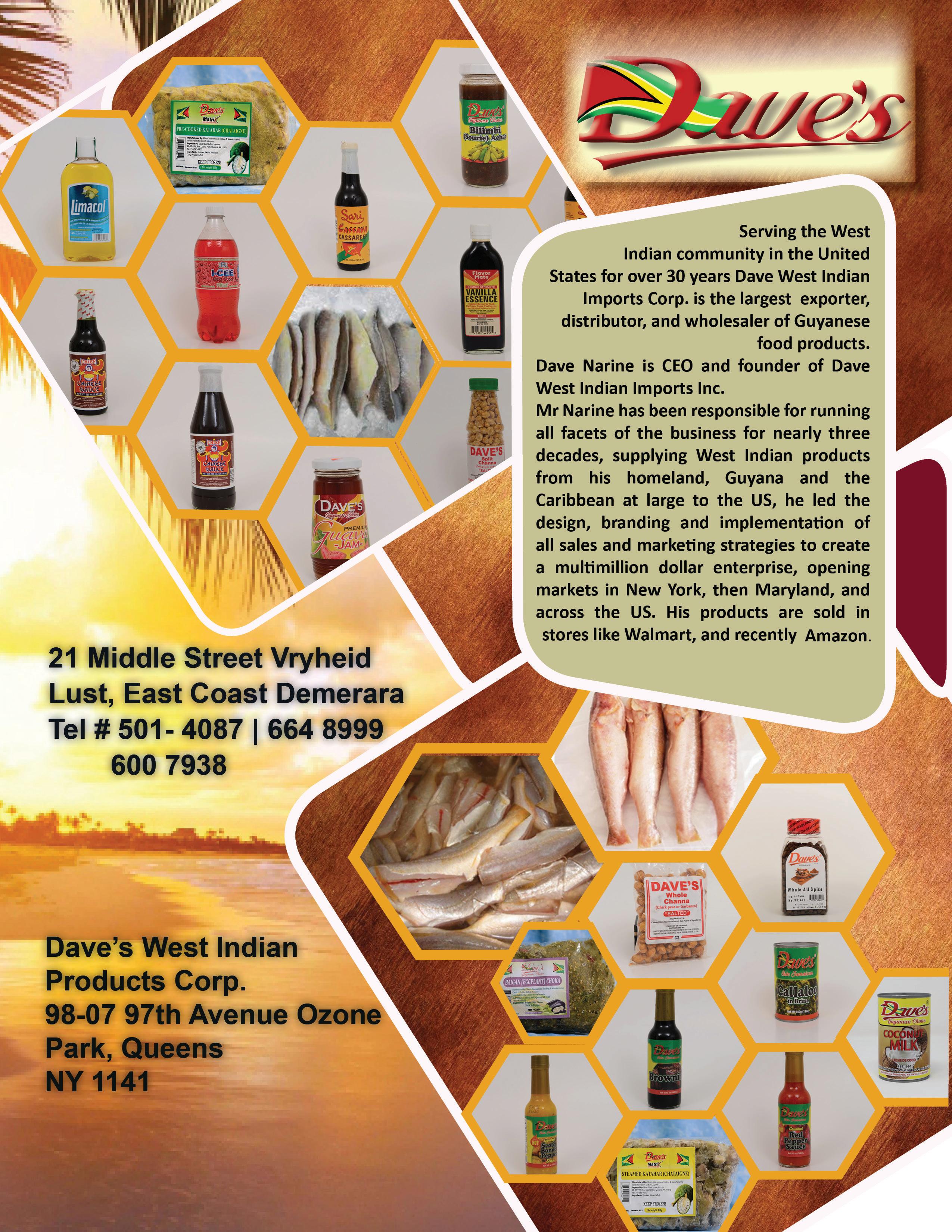
correct and orderly parking during church services. This realisation came after he learnt about the challenges many church members had when attempting to identify and secure good and orderly parking.

Serving in this capacity has given Bro. Roberts the gratification of knowing he has helped others, and plaudits from members expressing gratitude for teaching them how to properly manage parking spots, have given him great delight.

Even though serving in the parking lot is what most people remember him for, working in the recreational department has also given him a lot of pleasure. It provides him with the opportunity to share about Christ. The platform allows him to encourage team members to devote their lives to Christ.
“No matter what your talent is, go with your passion, serve with all your heart, and enjoy what you do,” Brother Roberts said in concluding the interview while encouraging young members.
and he was selected to lead the sports team. Before taking on this leadership duty, Bro. Mark made a conscious decision to convert his life and serve God wholeheartedly. Similar to Pastor Jackman’s keen eye, another church leader pointed out Bro. Mark as a youngster to stand at the pedestrian crossing and assist in controlling traffic flow and pedestrians before and after church. He graciously accepted and continues to serve to this day.
Serving in God’s kingdom has taught Bro. Mark to be obedient, he admitted. He feels deep gratitude and notes that service in the kingdom of God encourages him to never return to his previous life and to continue on the right course. “God is the right road, God is the only path”, he said.
Members of the sports teams benefit from Bro. Mark’s excellent training, time commitment to the teams, and passion for sports. He provides them with an open field where team members may have fun while playing, but he also teaches them order and discipline. Bro. Mark utilises the chance at the conclusion of each session to pray with the team or empowers a teammate to pray so that each would practice praying.
For 20 years, Brother Mark DeBarros, popularly known as “the man at the crossing,” has stood at the pedestrian crossing in front of First Assembly of God Wortmanville church, directing congregants and automobiles. For the last 10 years, he has been a member of the recreational department, mentoring and coaching youths in football and cricket — a lively and committed servant of God who is quick with a smile and a kind greeting.

Bro. Mark shared that he made multiple mistakes in his early years of life, but he understood he needed to change. His gifts in leadership and sports were recognised by the late Pastor Jackman,
Bro. Mark, who became a born-again Christian twenty years ago, is committed to using his talents to serve. As a new man in Christ, he considers it a pleasure to serve. He is also grateful that his service allows him to win souls for the kingdom as he continues to mentor young men, share the gospel with them and urge them to attend church.
Brother Mark DeBarros challenged young people to consider why they should serve God. “When you constantly serve on the devil’s side, doing wrong, it may look exciting at the time, but when you serve God, you receive eternal glory. Therefore, serve God!” he advised youths.
May God continue to bless these obedient servants of the Lord, and may prosperity abound in their lives.
The Church has been given a diplomatic assignment to send forth ambassadors to preach the Gospel to the ends of the earth (Acts 13:47, Mark 16:15, 2 Corinthians 5:20). The ills faced by humanity, including war, famine, child trafficking and poverty, can be chosen from a longer menu, most of which transcend borders. Believers must therefore operate with an Issacharian mentality and present cross border solutions so that the world might come to know our Christ and the Paraclete, Who remain the protagonist of our purpose on earth.
Does this mean that the church needs a foreign office or embassy to mediate and medicate under its diplomatic mandate? Yes, it does. And our local church has responded. The visionary leadership of Bishop Dr Murtland Raphael Massiah led to the creation of a Diaspora Ministry within the First Assembly of God Wortmanville (FAOGW) on 2 June 2021. Two roving ambassadors were appointed in Assistant Pastors Kurt Corbin and Celicia Paruag, based in Switzerland and the United States, respectively.
The 1st anniversary celebration of the Diaspora Ministry was hosted on 11 June 2022 in a virtual event with 100+ attendees. The theme of the celebration was The Path Ahead and focused on diaspora footprints as well as diaspora milestones. Assistant Pastor Celicia Paruag moderated the session, which included opening prayers by Minister Rawle Duncan, worship by Sister Marcia Granville and a keynote address by Bishop Dr Massiah. The moderator reflected on the birthing of the ministry out of the COVID-19 pandemic and how gathering for intercession kept and comforted many, as we grappled with the loss of loved ones. A moment of silence was held for members lost during the pandemic, demonstrating the close-knit culture of the FAOGW family.
Assistant Pastor Kurt, in his presentation, acknowledged that the pandemic pushed us to find new ways to evangelise, minister, spread the Gospel, and grow the church — an opportunity to influence the nations of the world. Leveraging ‘opportunity’ as the watchword, he challenged the attendees to execute their
ambassadorial mandate by interceding, evangelising and giving back. Likening the celebratory atmosphere to that in Nehemiah 12:27, he reminded those gathered that Nehemiah provided a blueprint for diaspora members to engage both their homeland and adopted lands. Nehemiah interceded before the construction began (Nehemiah 1). Evangelism was done by the Chief Priest as they read God’s Word in the city centre, while Nehemiah’s rebuilding of the walls of Jerusalem was the ultimate giving back.
The Diaspora Footprints included reflections from one of the longest migrated members, Sister Corrane Scotland and Diaspora youths, including Brother Hezekiah Lambert, Maxwell Logan, Shequan Corbin, Shequaine Corbin and Sister Rachael Duncan.

Bishop Dr Massiah encouraged the attendees to operate in the power experienced by the believers at Pentecost (Acts 1:8). He shared his faith in the potential of the ministry by alluding to the quote that “it is easier to stop tomorrow than an idea whose time has come.”
The Diaspora Milestones included the following:

• Baby Dedications and Baptism Ceremonies
• Diaspora participation in several virtual programs including Celebration Day, Vacation Bible School (VBS), Women’s Investment Webinar, Sunday School Retreat, and Marriage Retreat


• Diaspora Testimonies of answered prayers
• Diaspora production of Choices GLOBAL – YouTube Programme.
• The milestones reflect the potential domino effect when we operate in the power of the Holy Spirit. Diaspora! Dunamis! Dominion!
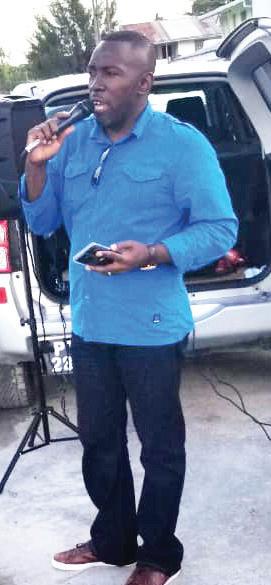

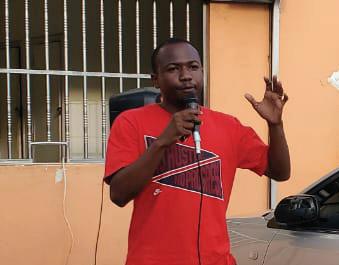


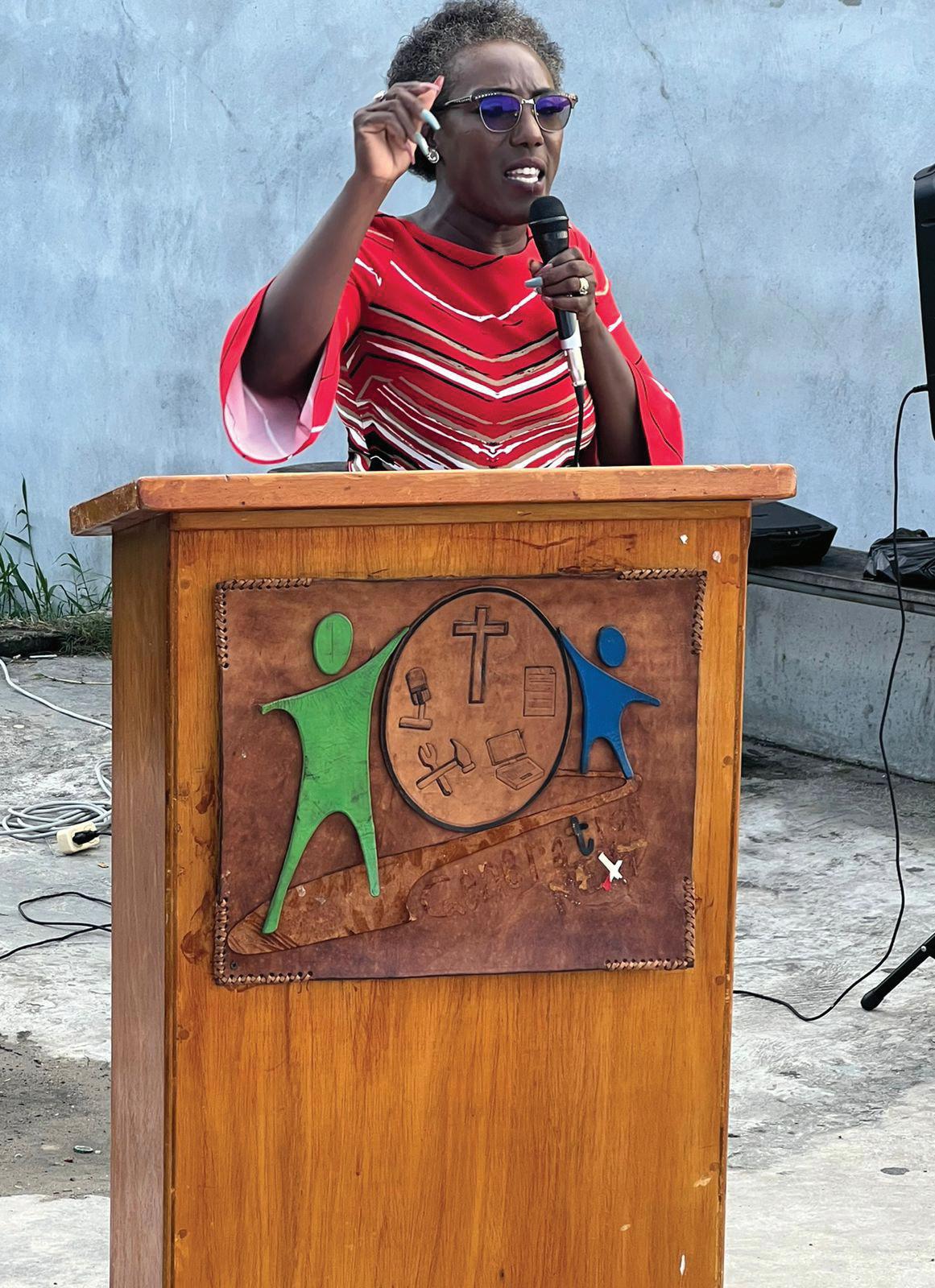
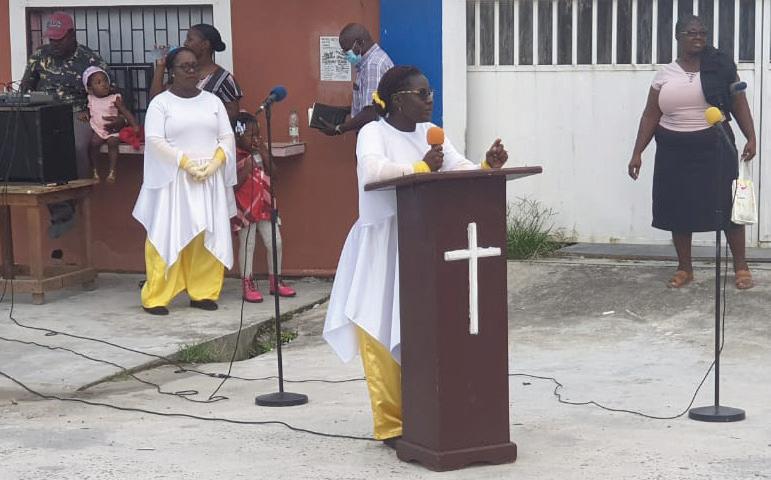
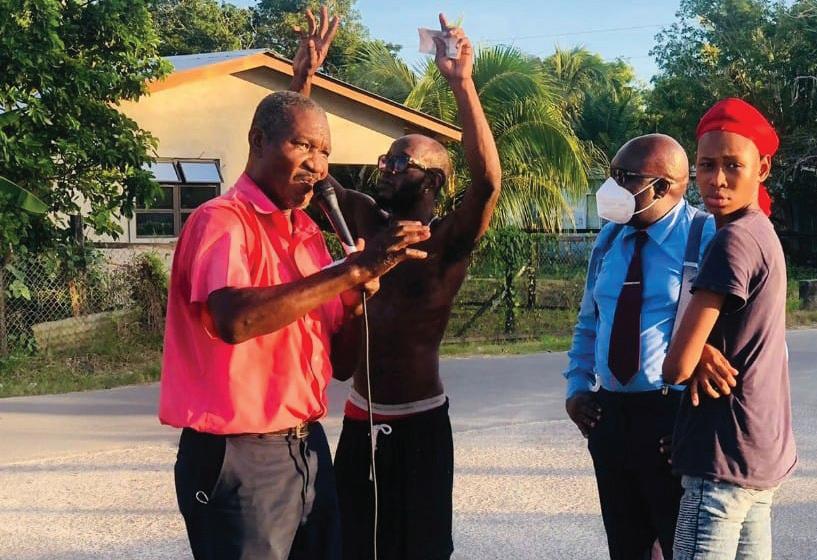

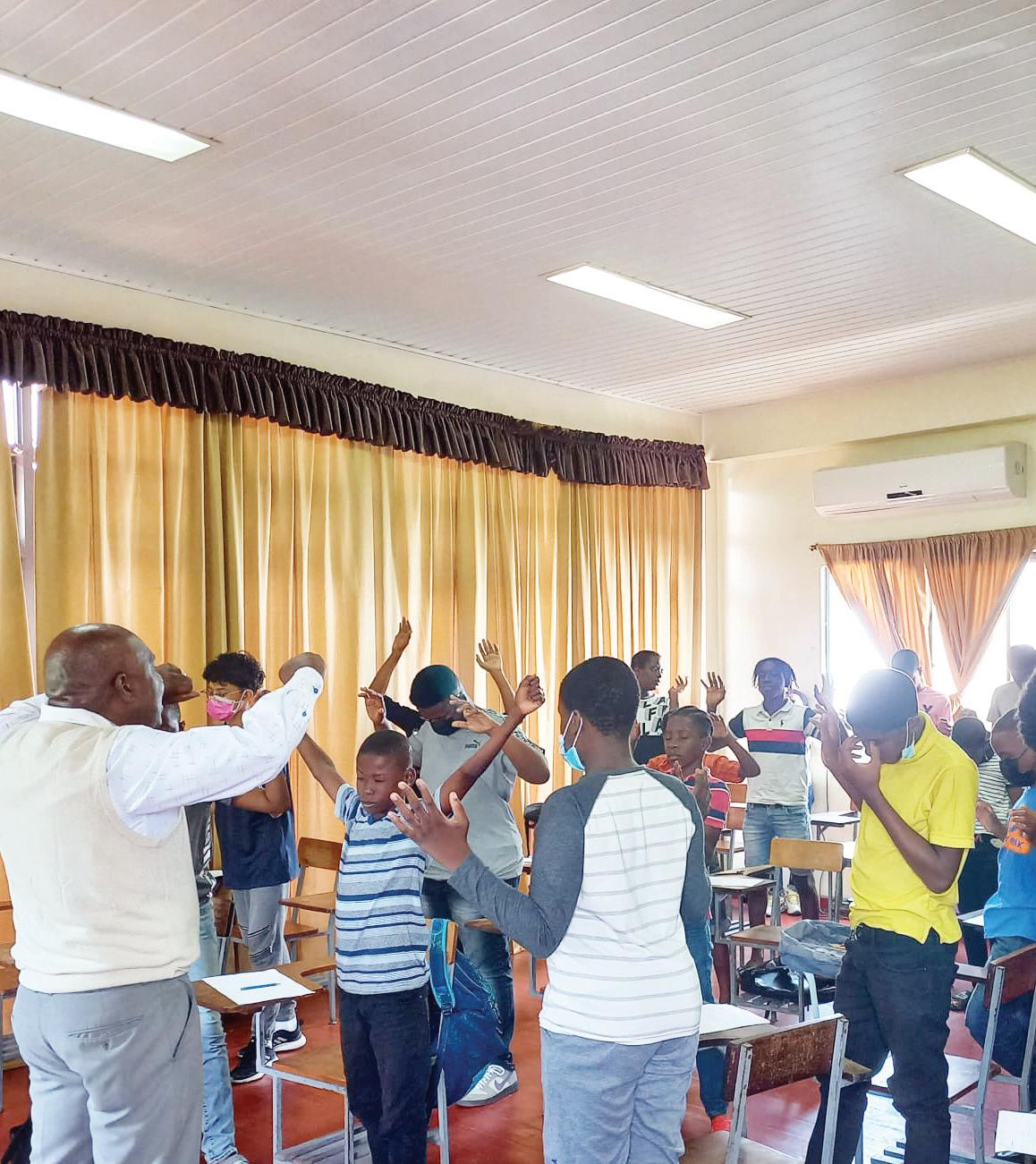
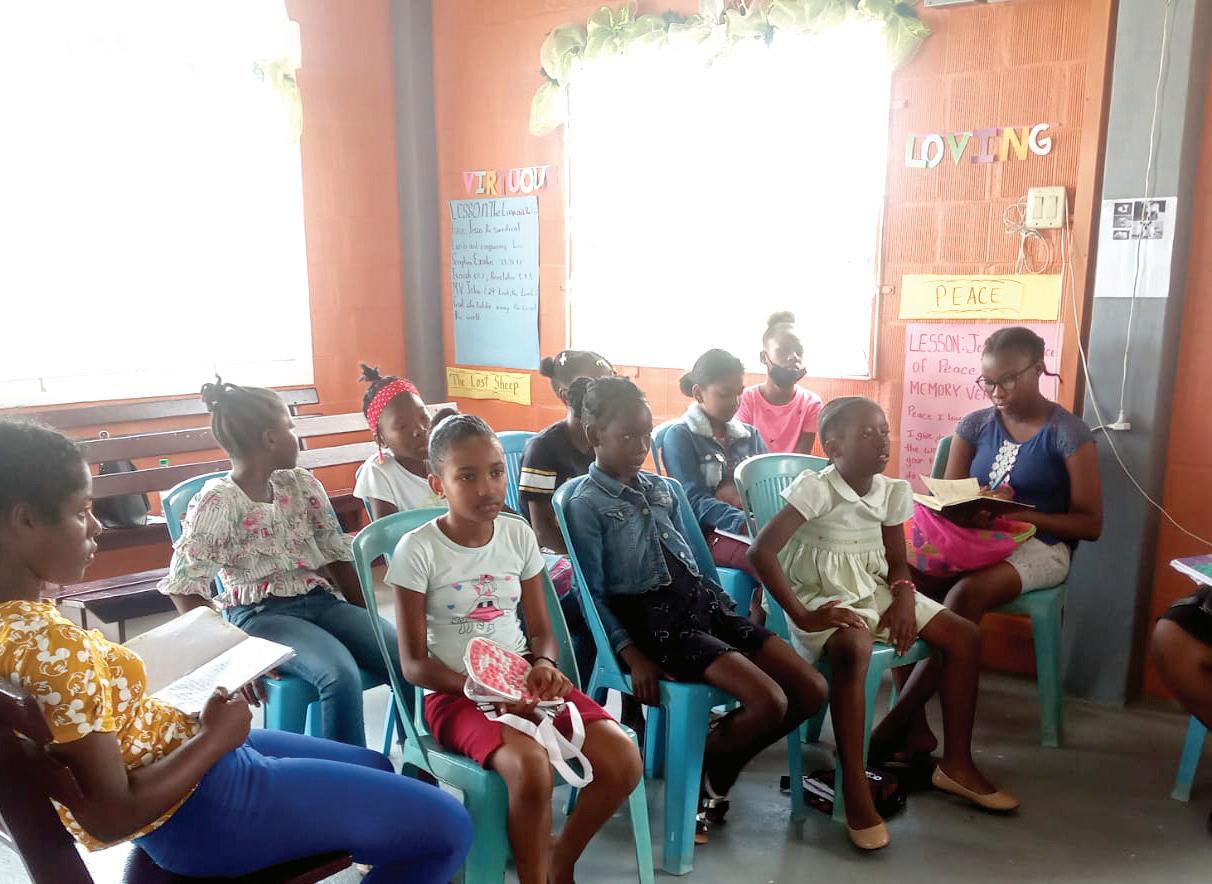


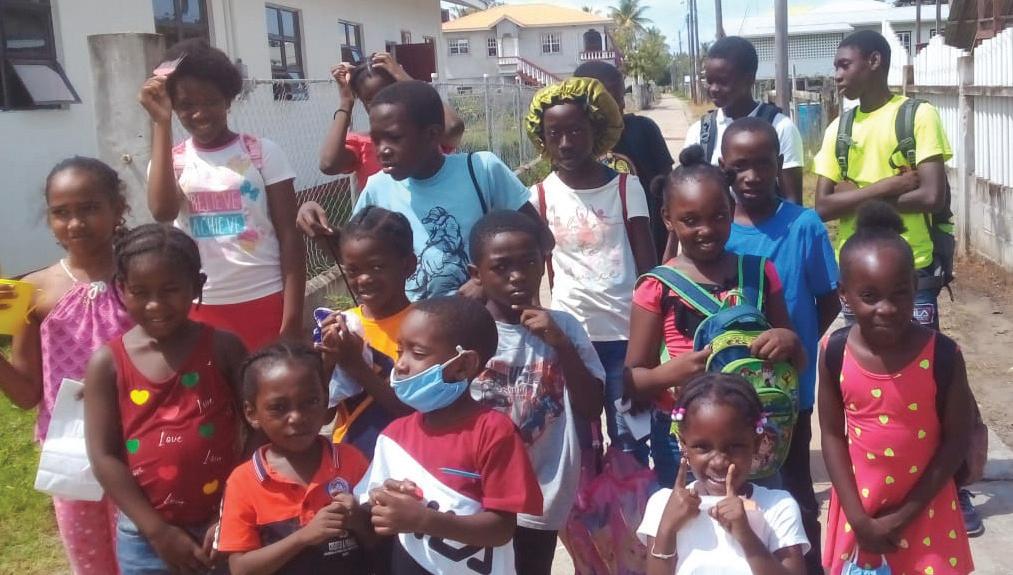

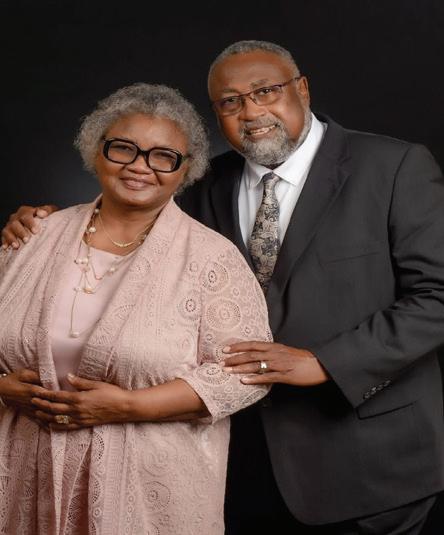
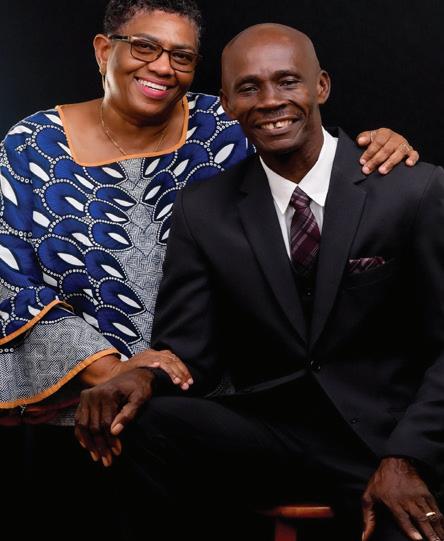
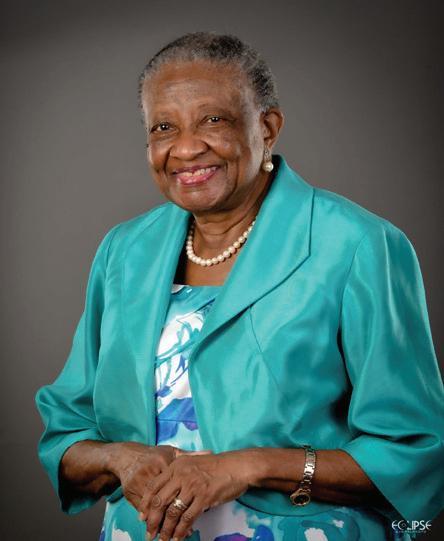
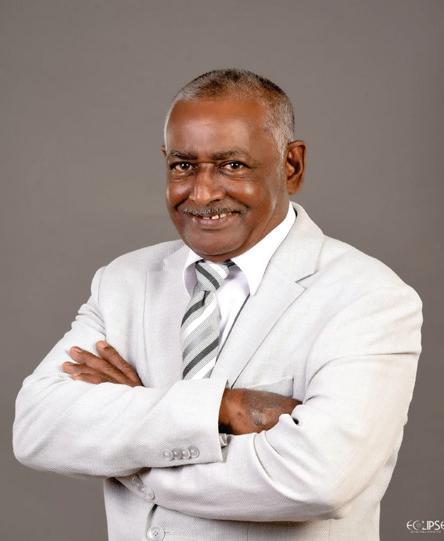
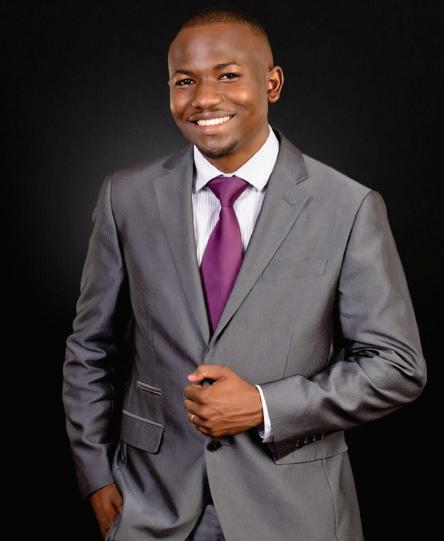


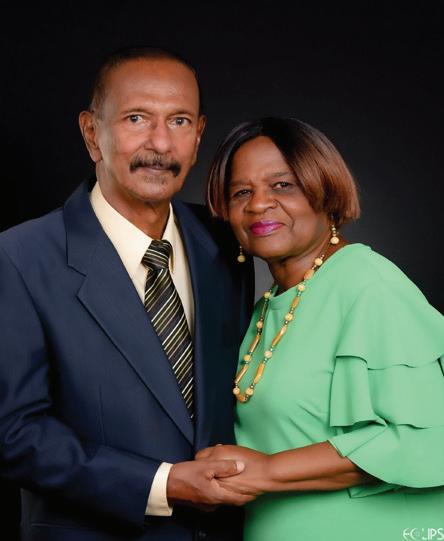
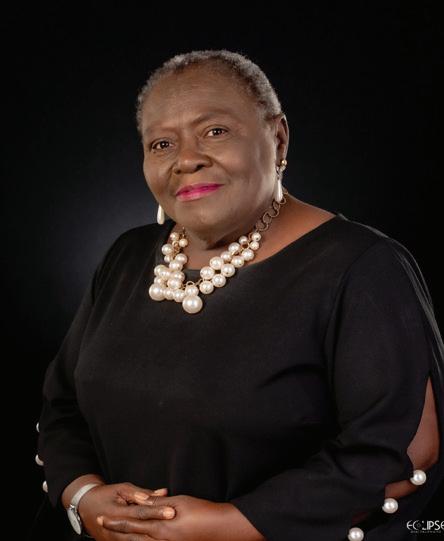
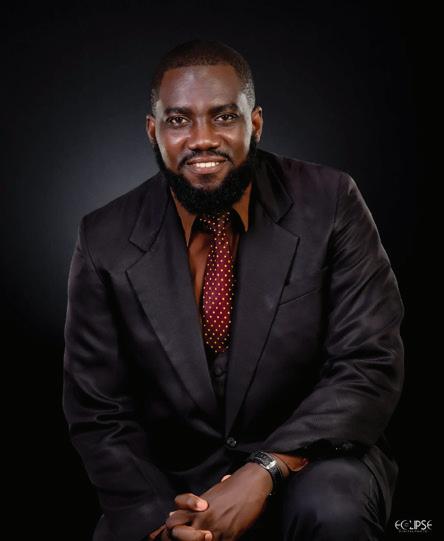





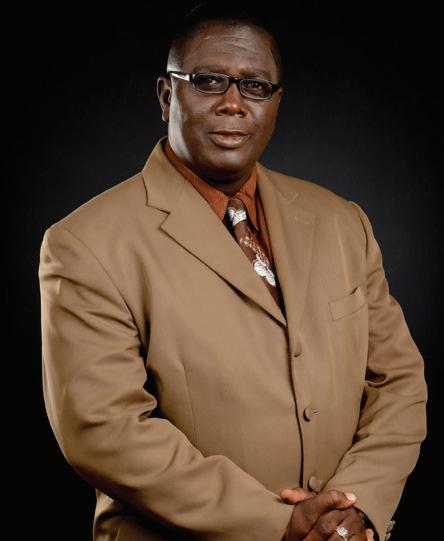
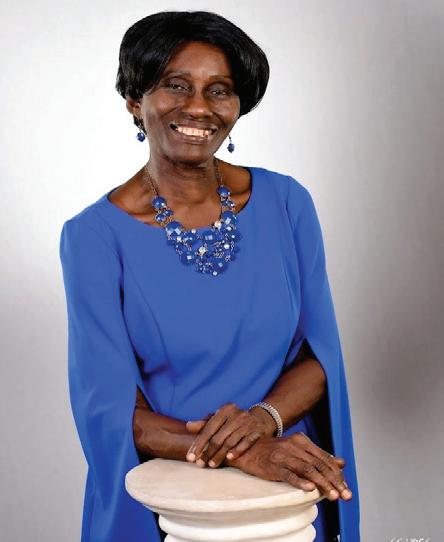
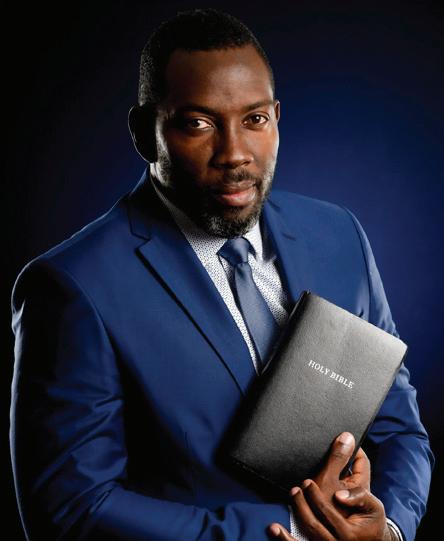




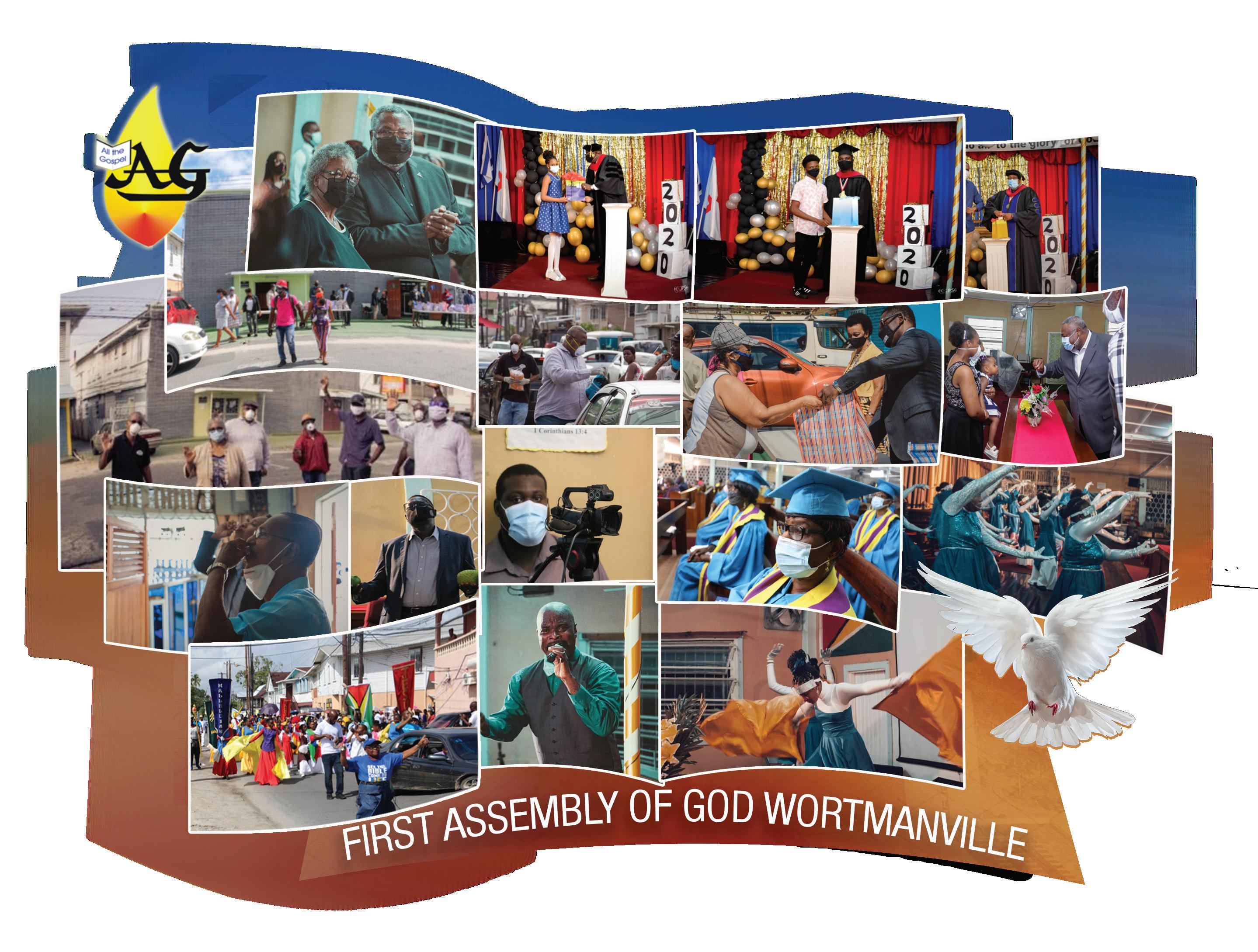
 Parfaite Harmonie Assembly of God
Judah Assembly of God
Barnwell North/ Prosperity Assembly of God (Artist’s Impression)
Hopetown Assembly of God
Parfaite Harmonie Assembly of God
Judah Assembly of God
Barnwell North/ Prosperity Assembly of God (Artist’s Impression)
Hopetown Assembly of God
